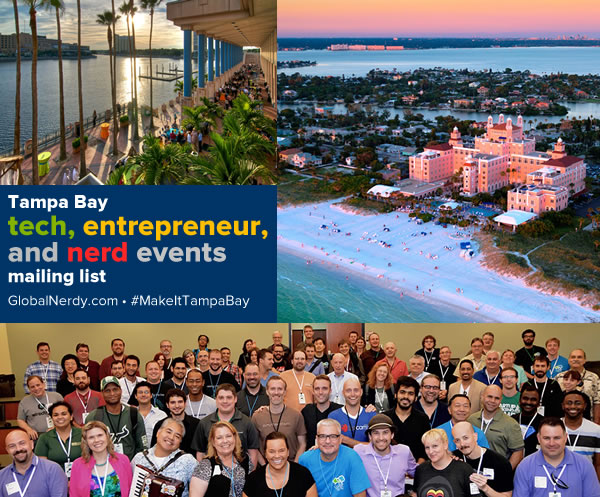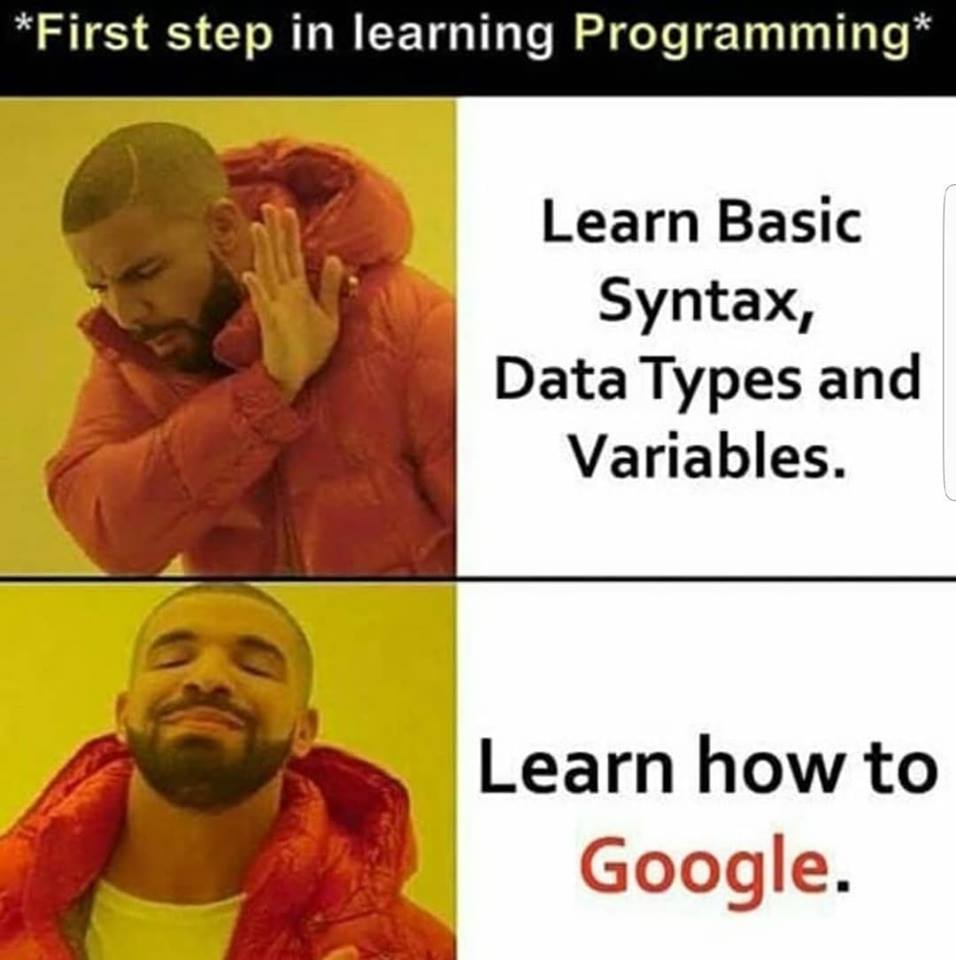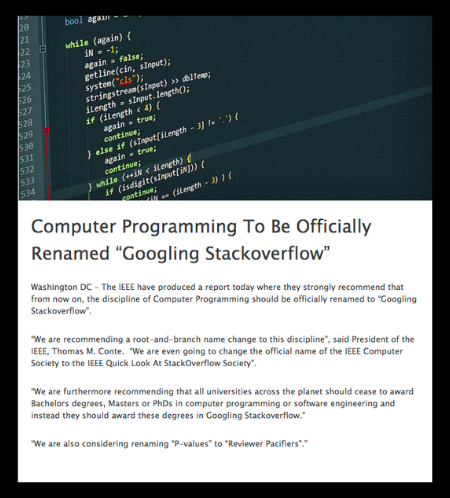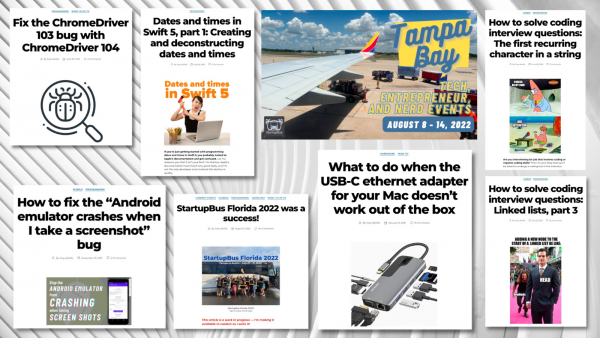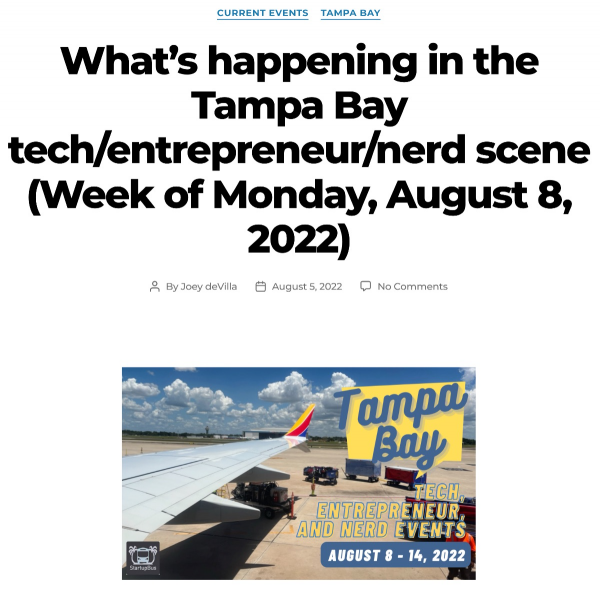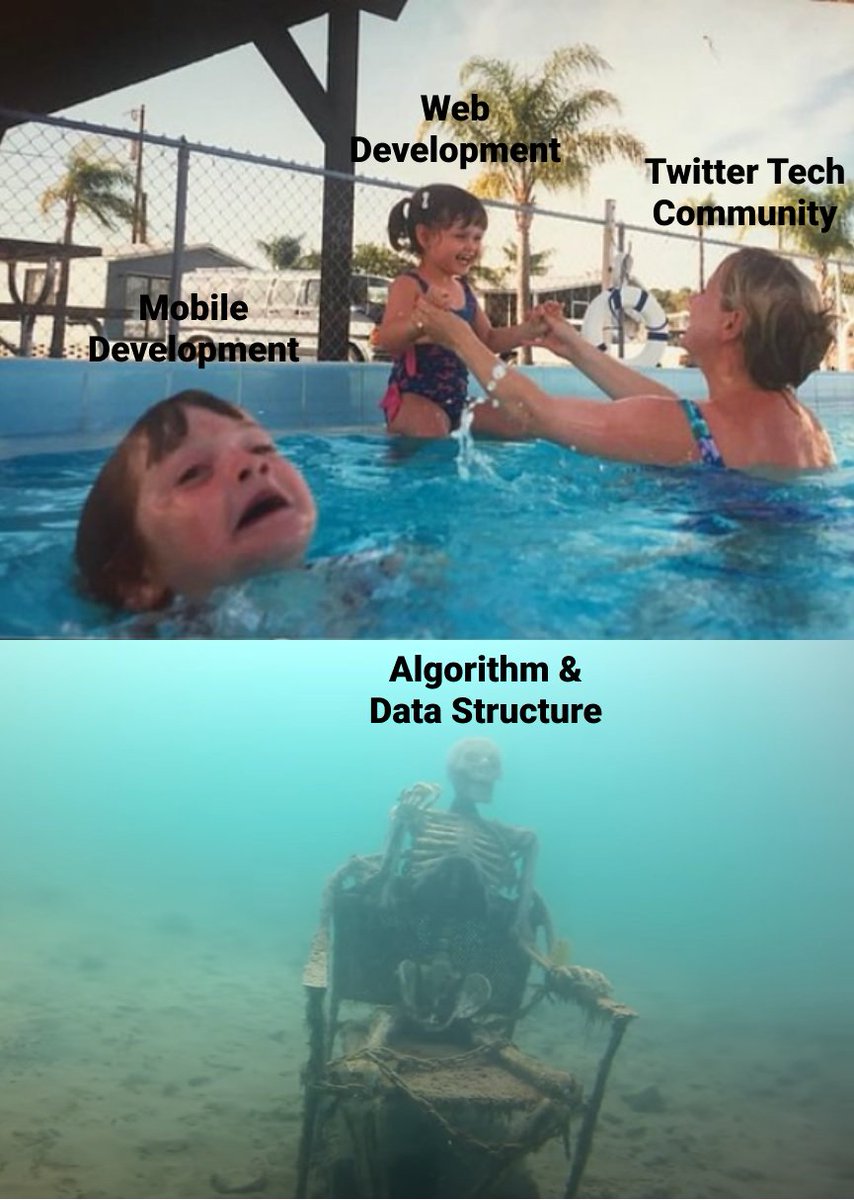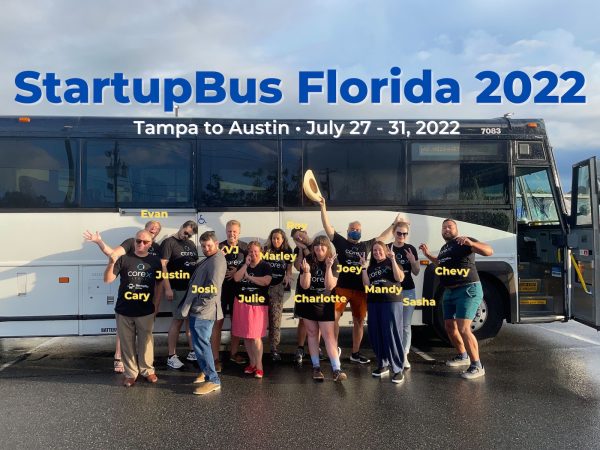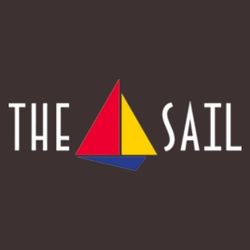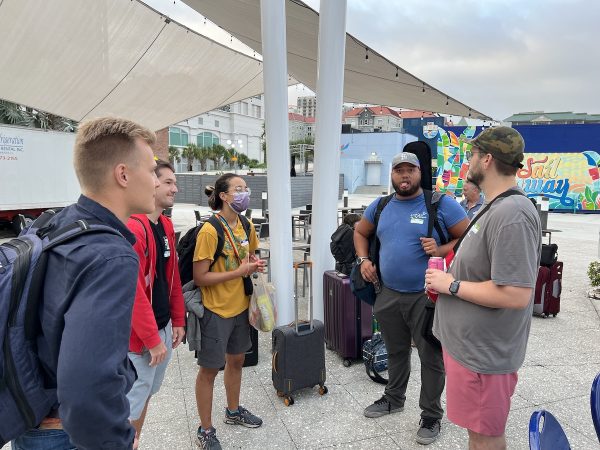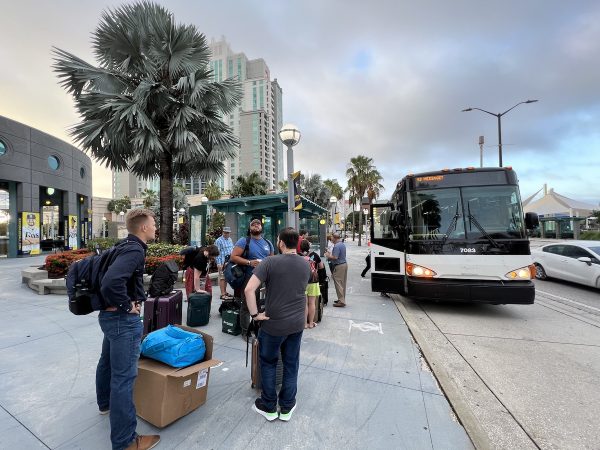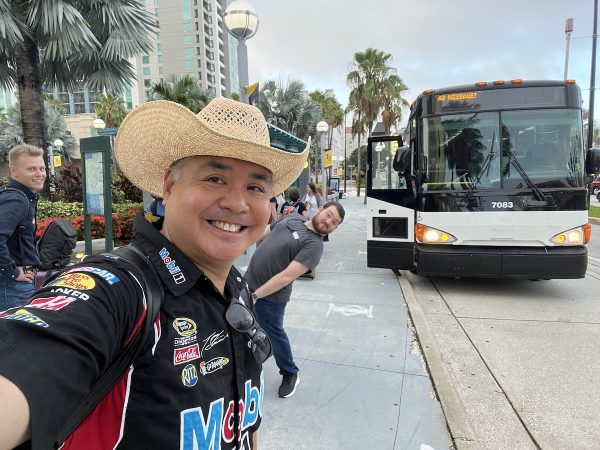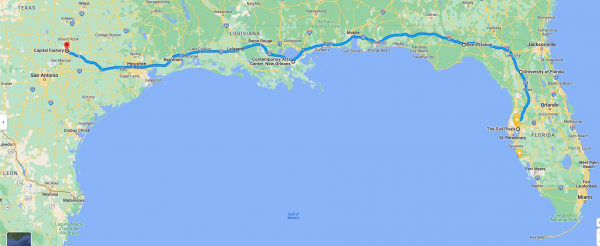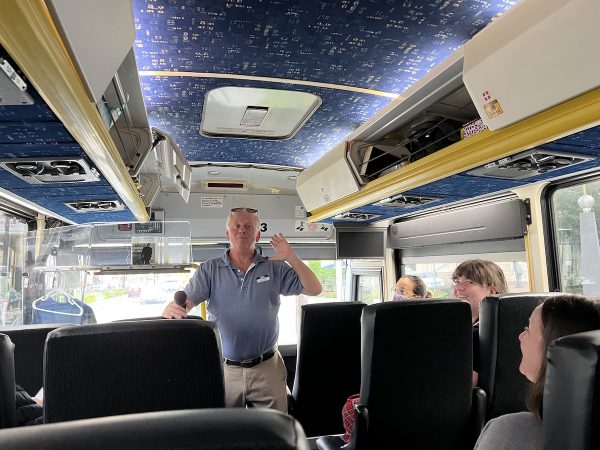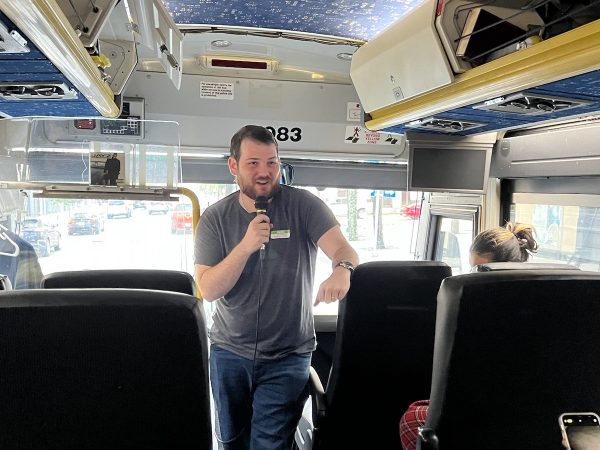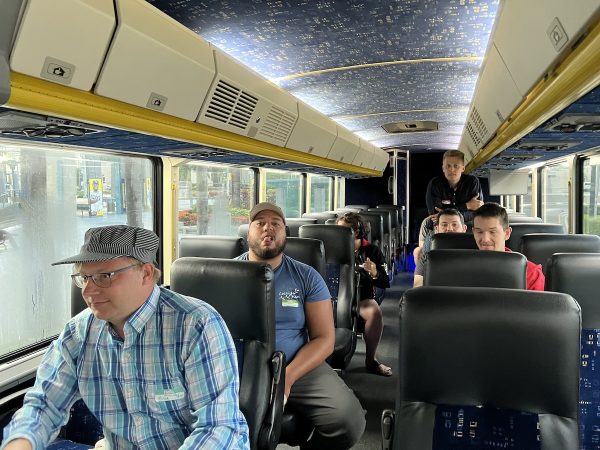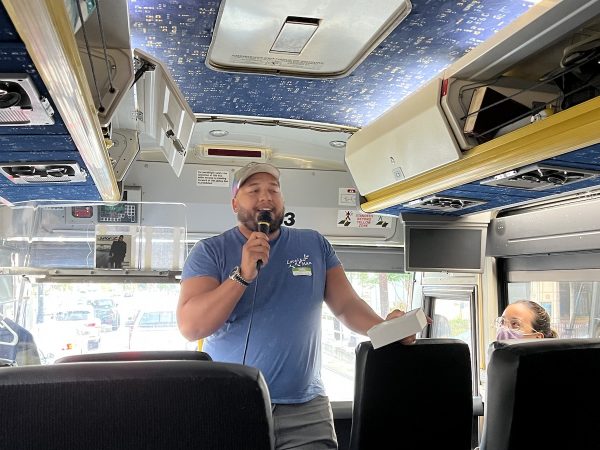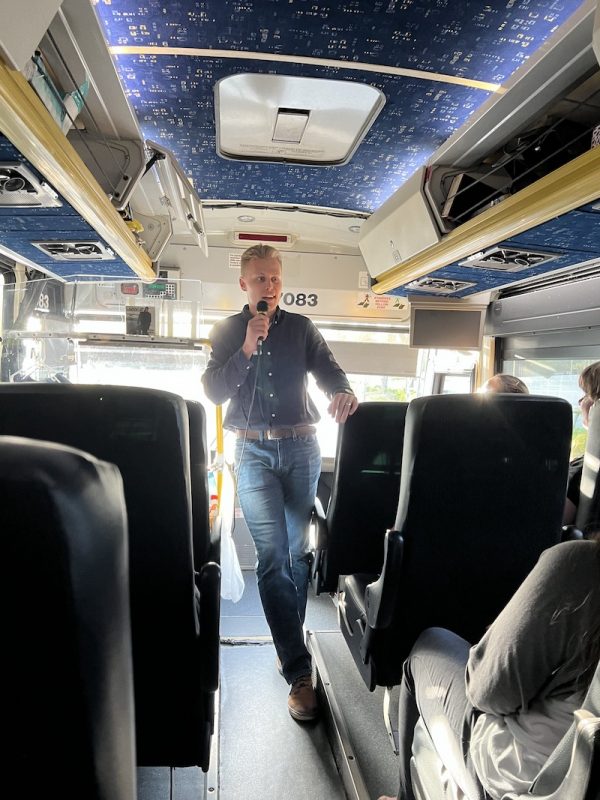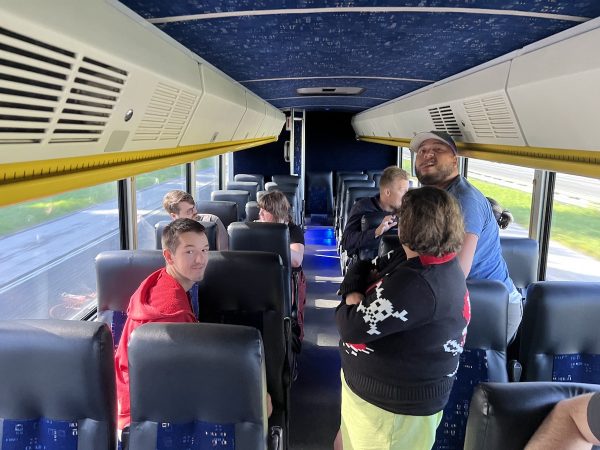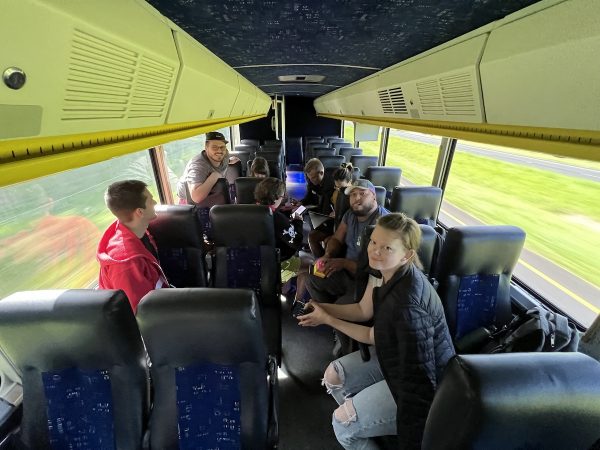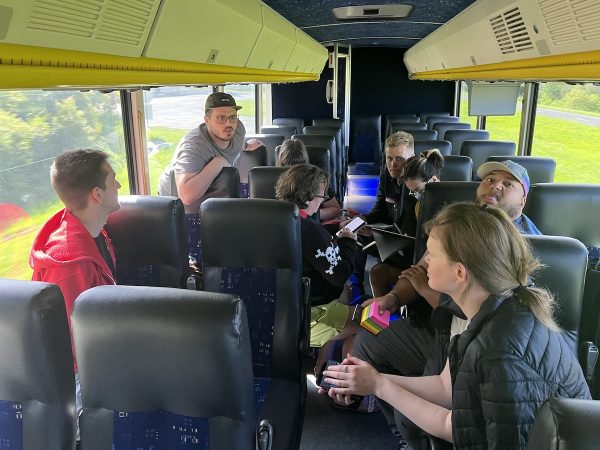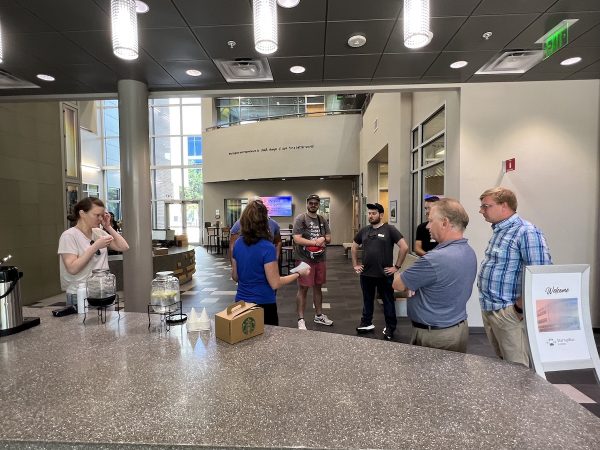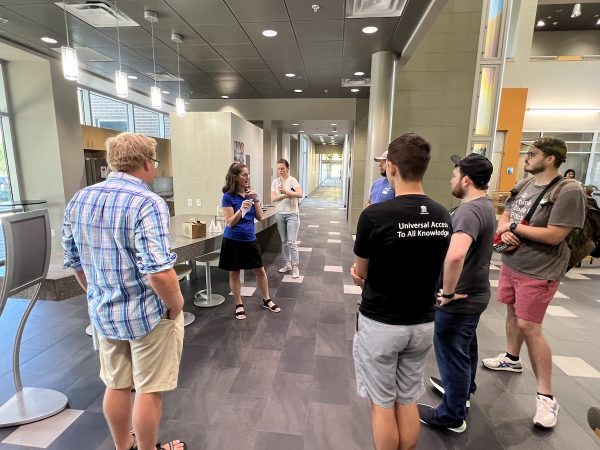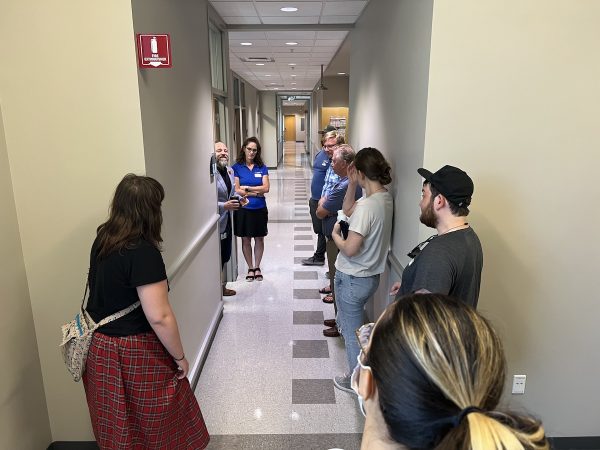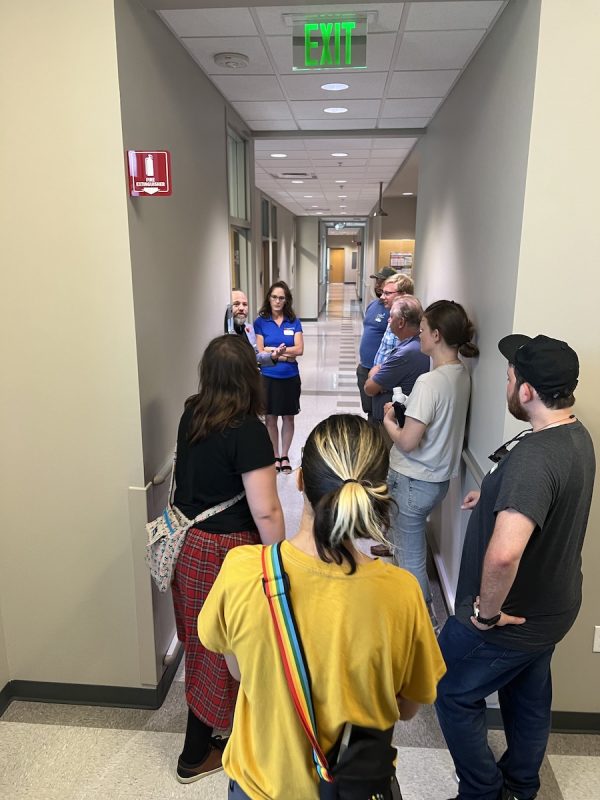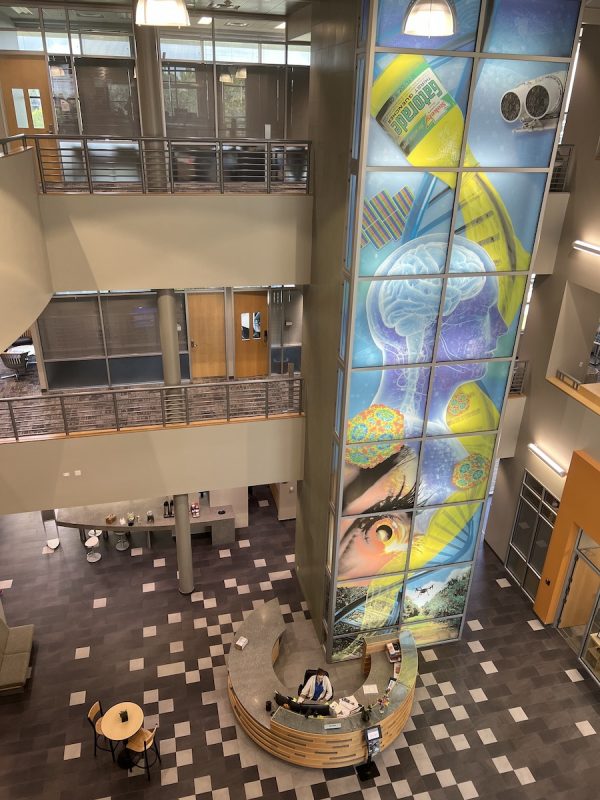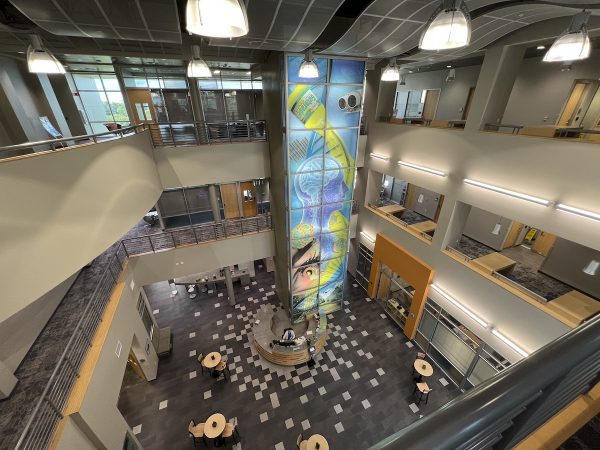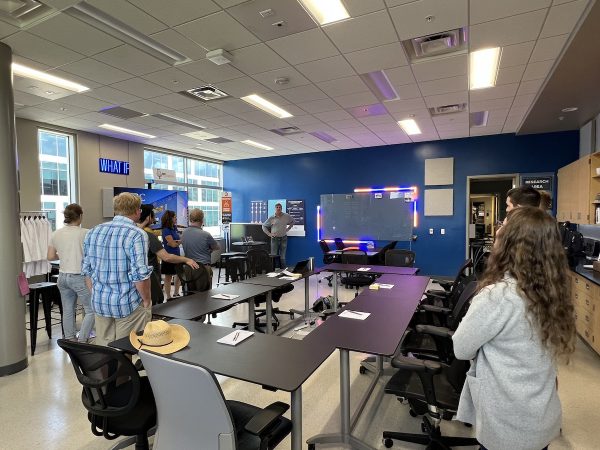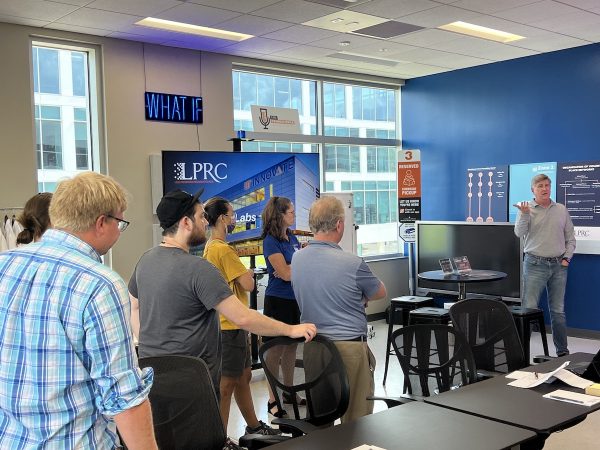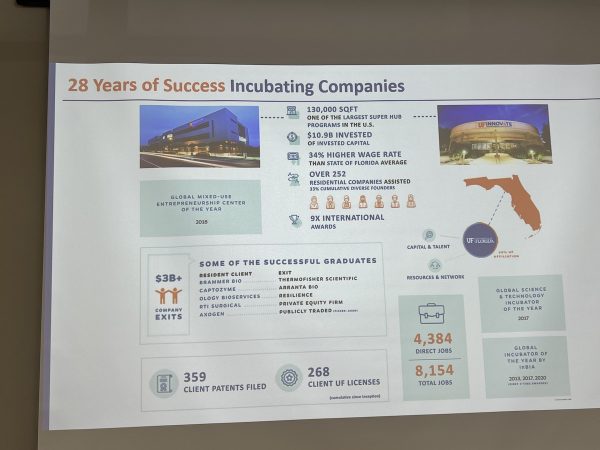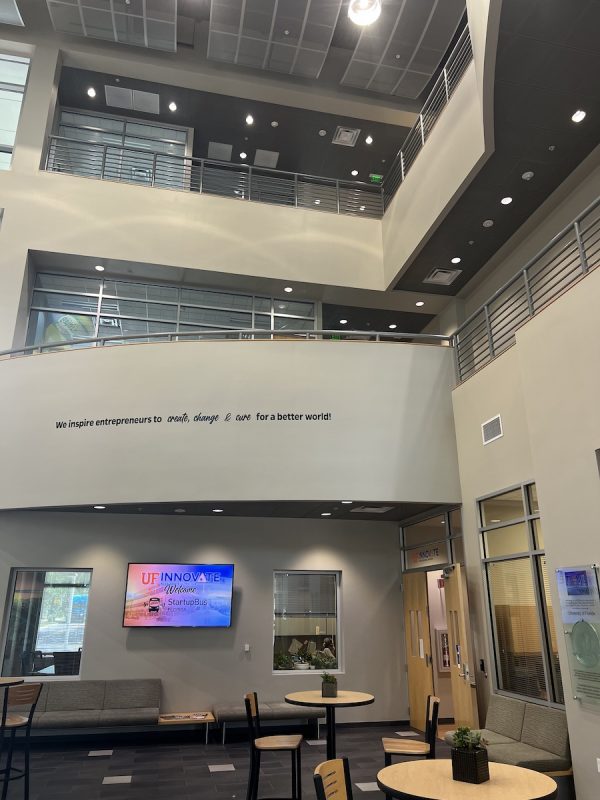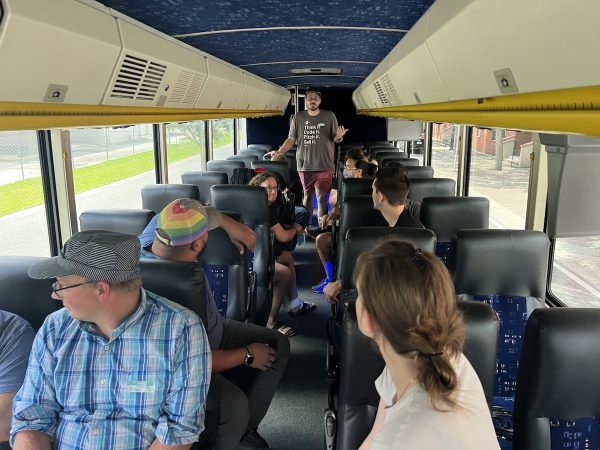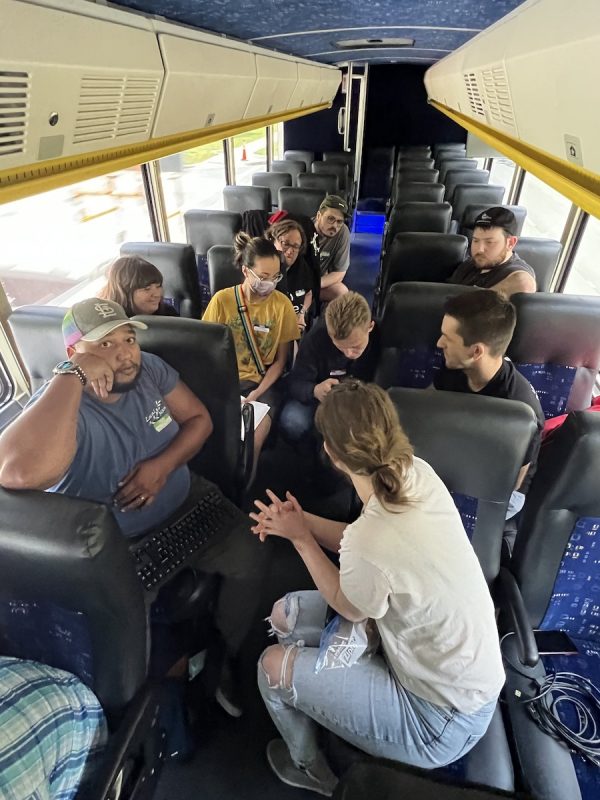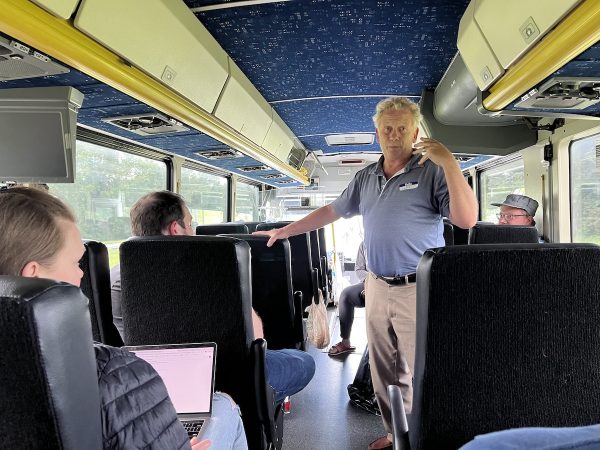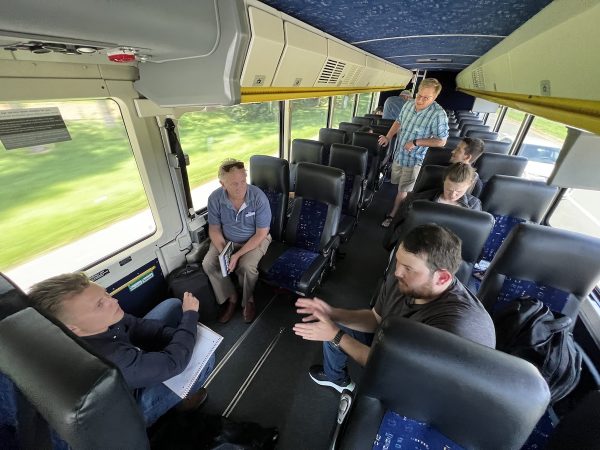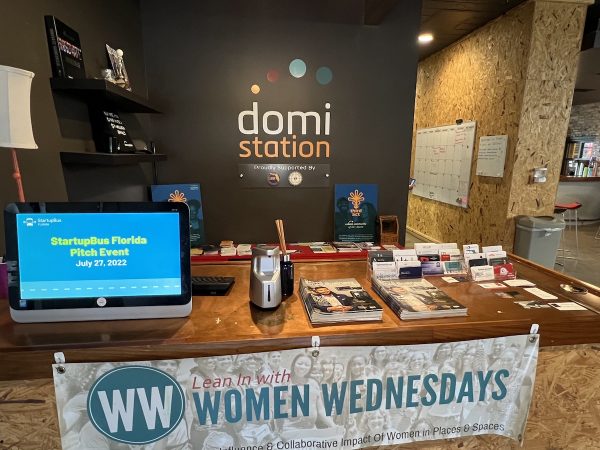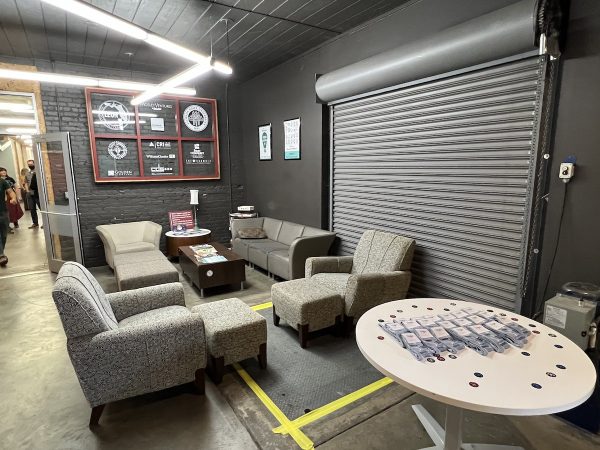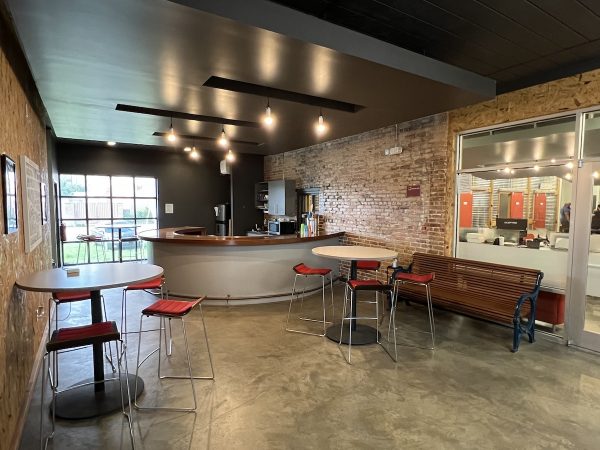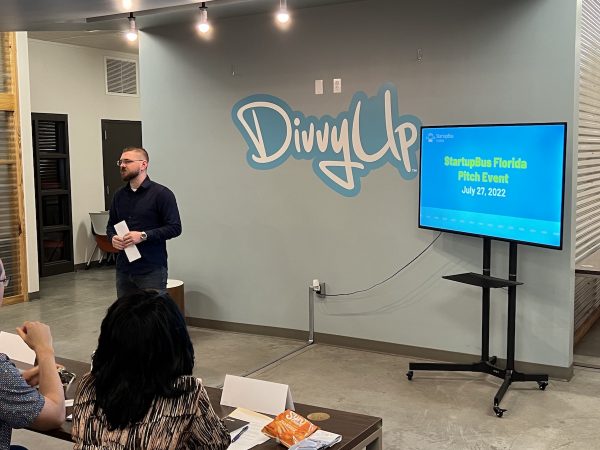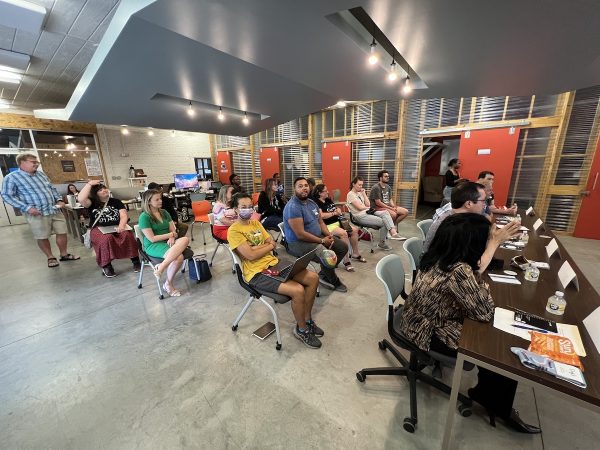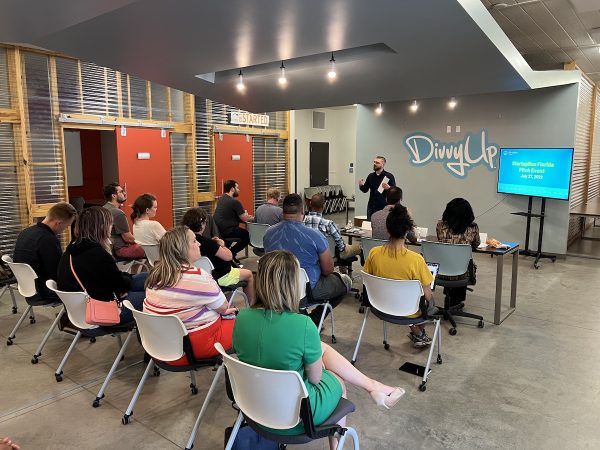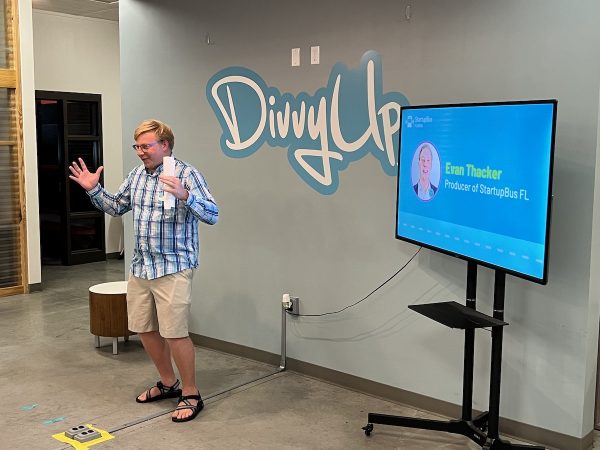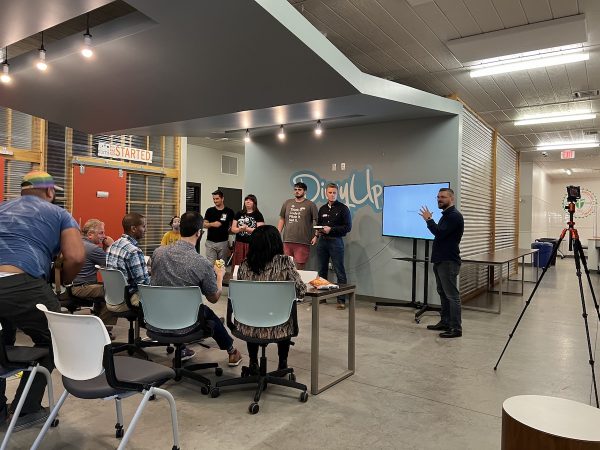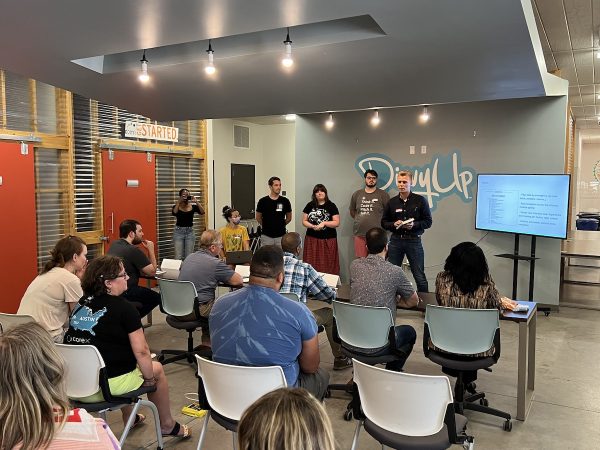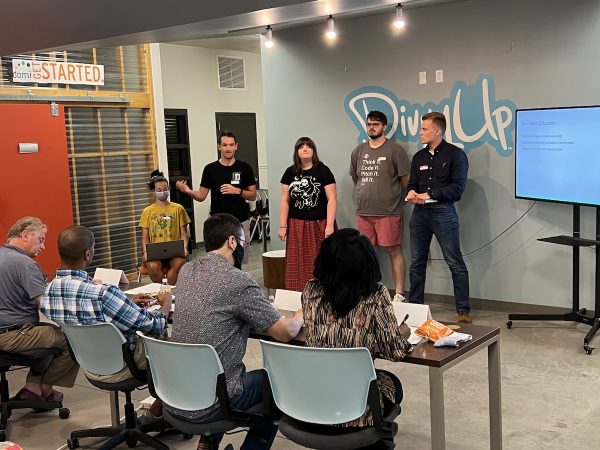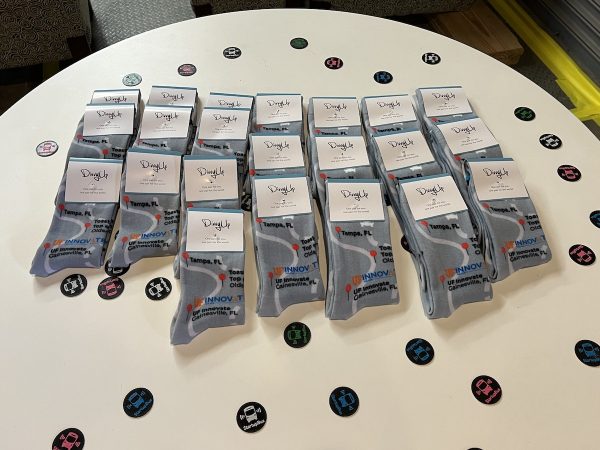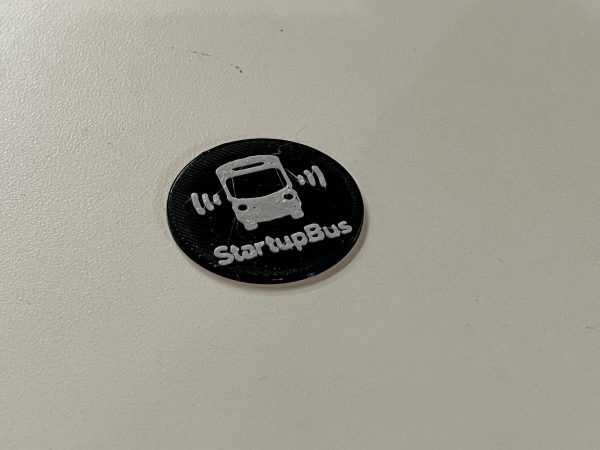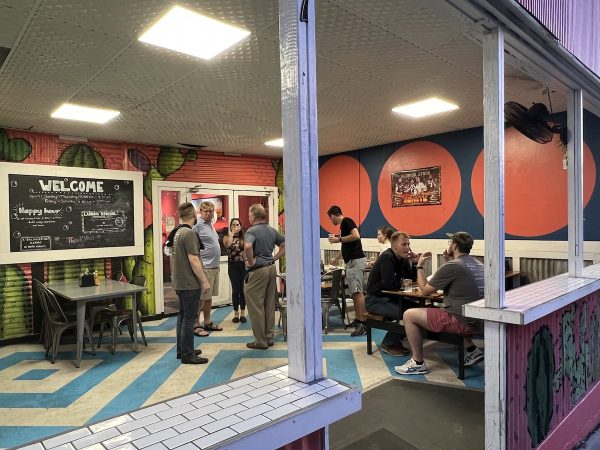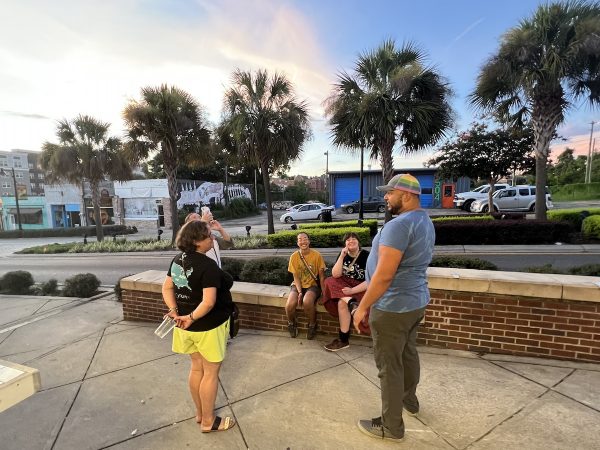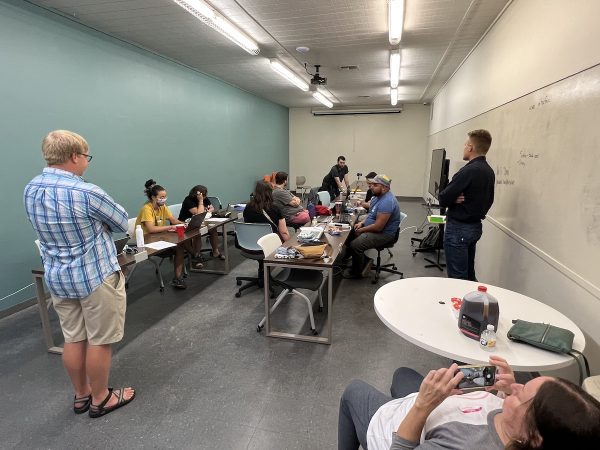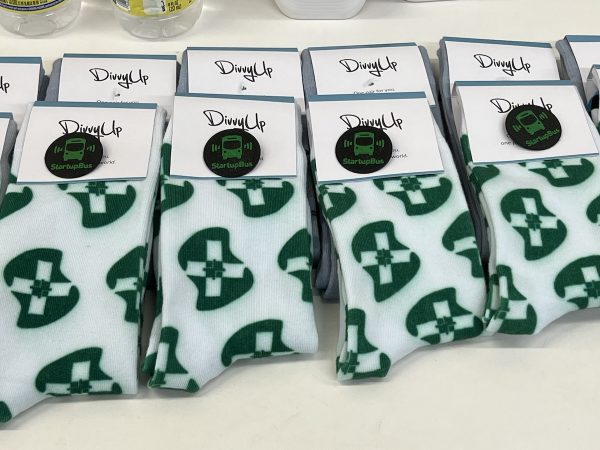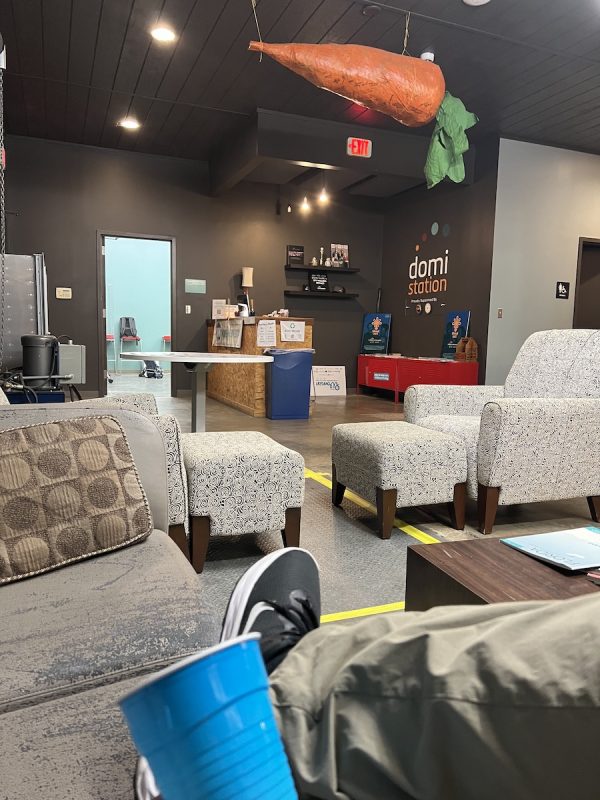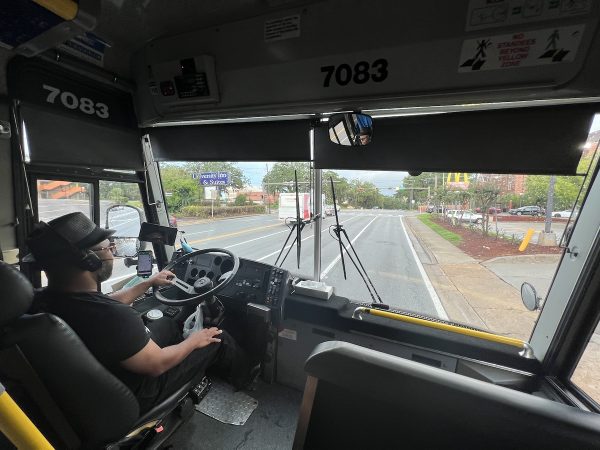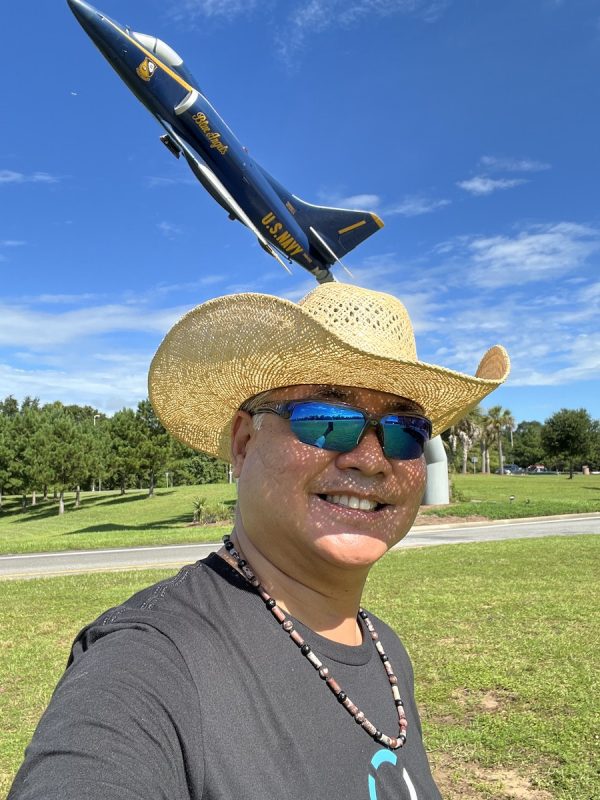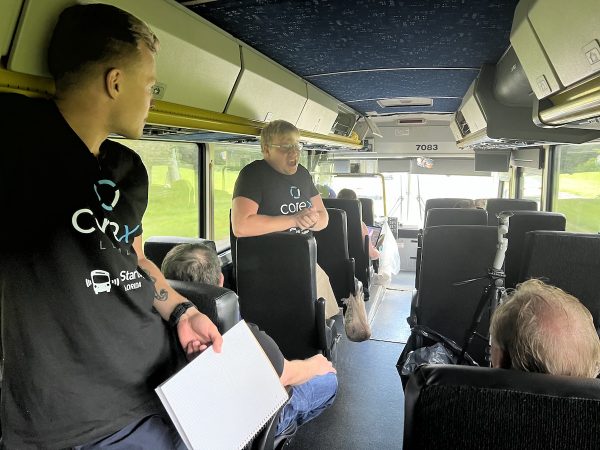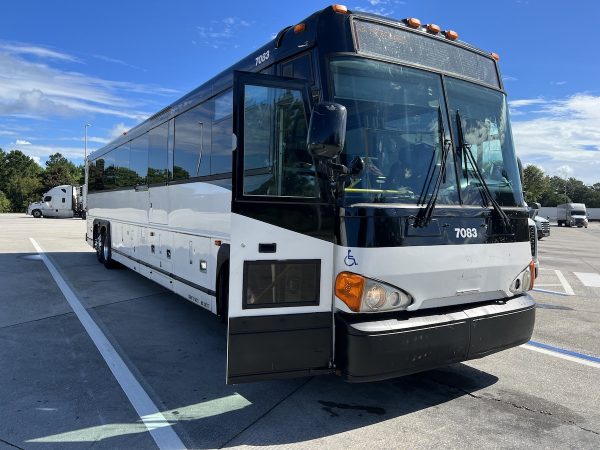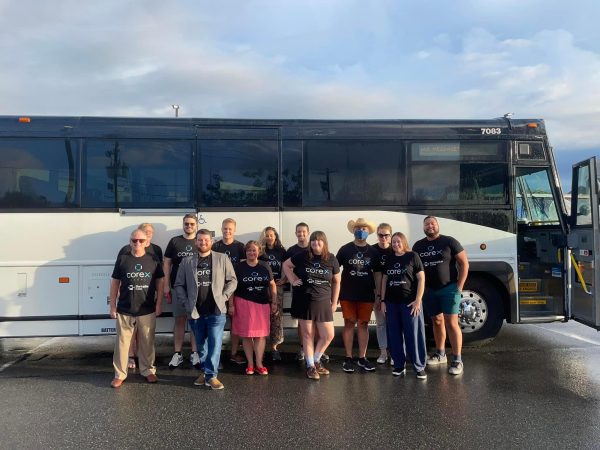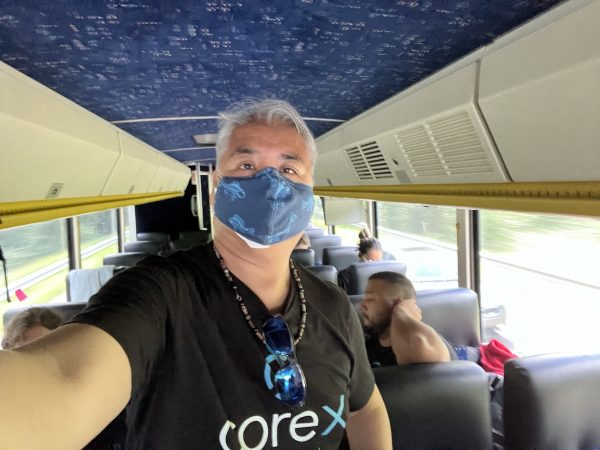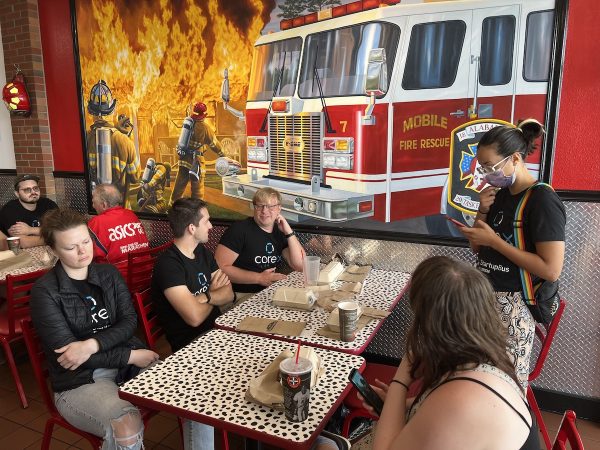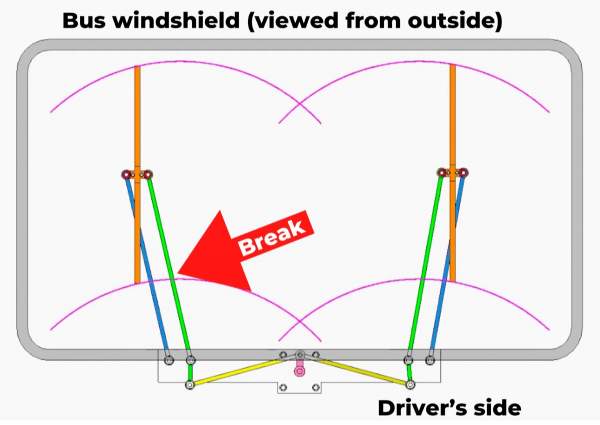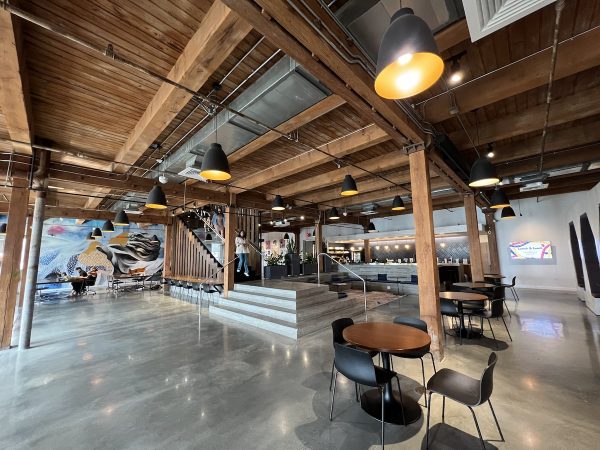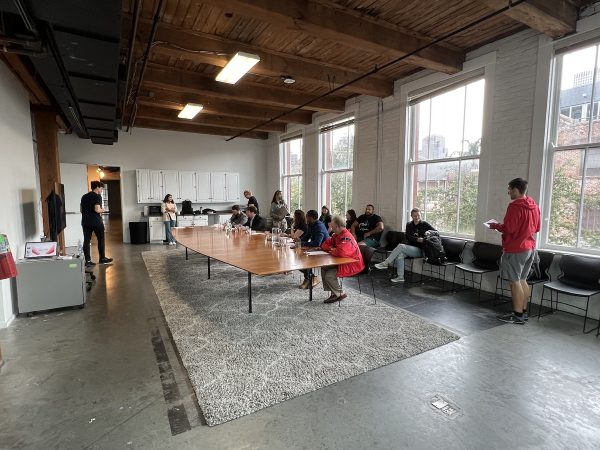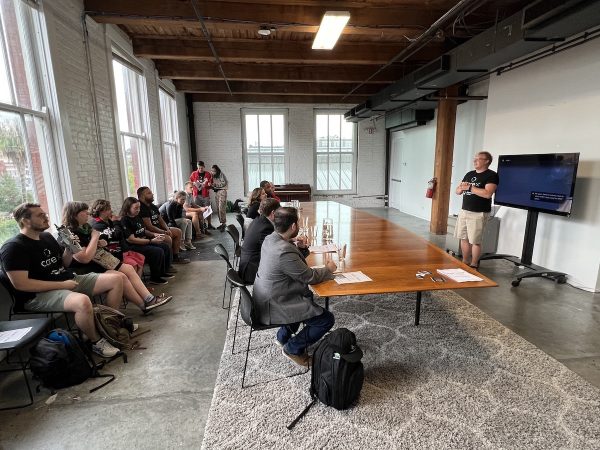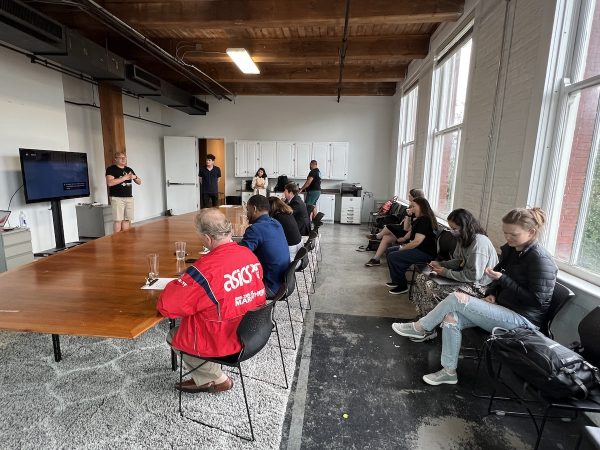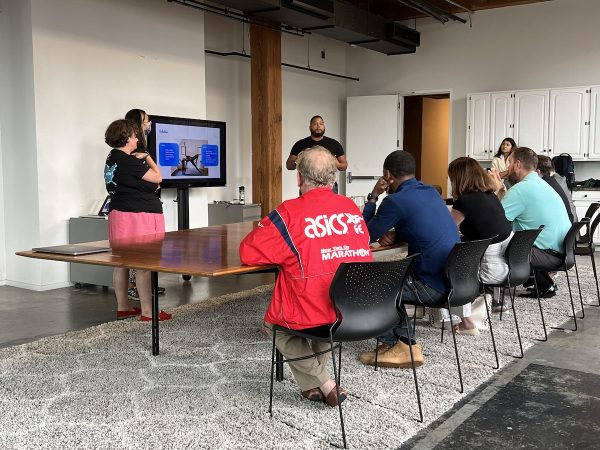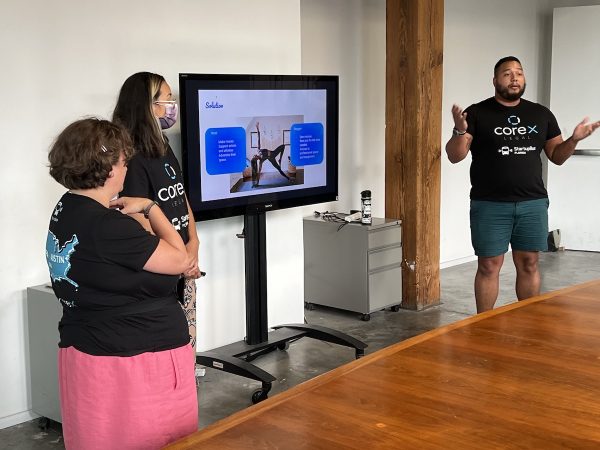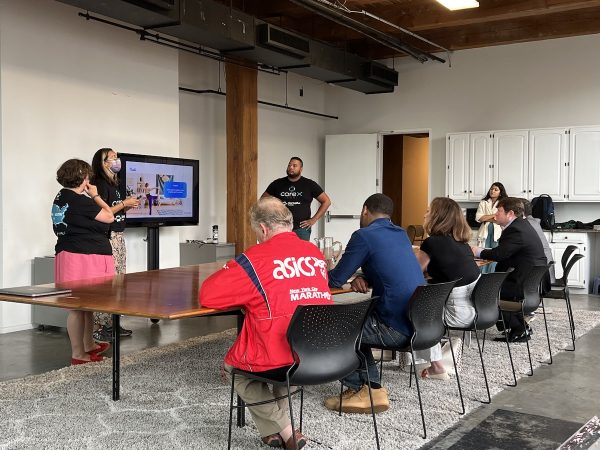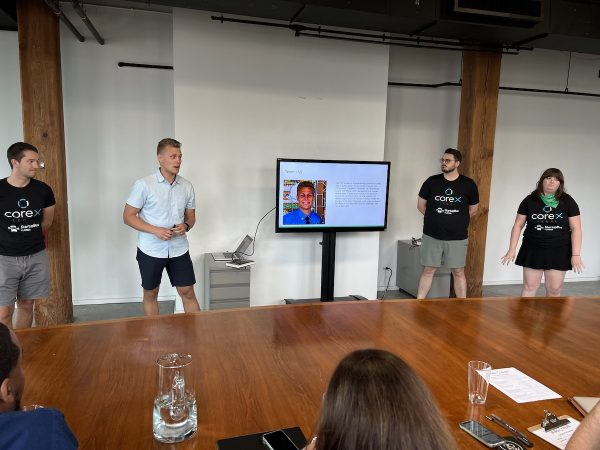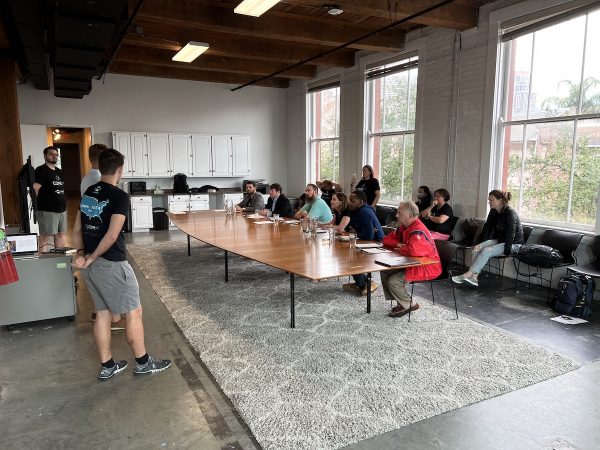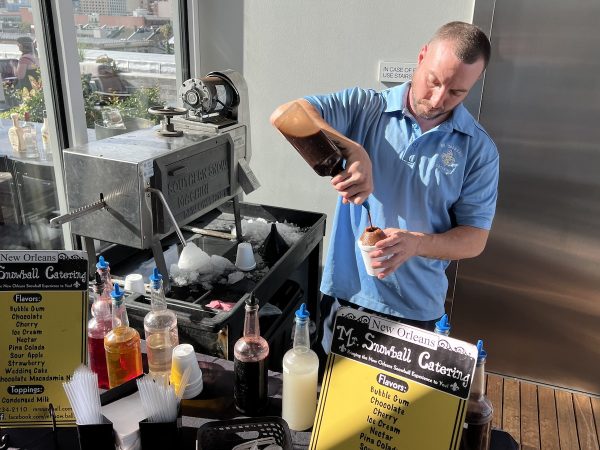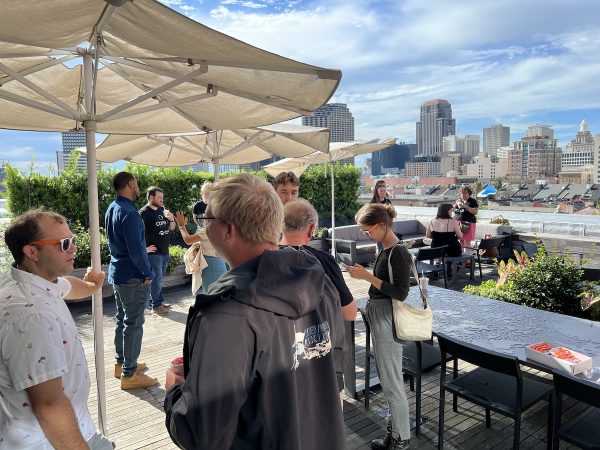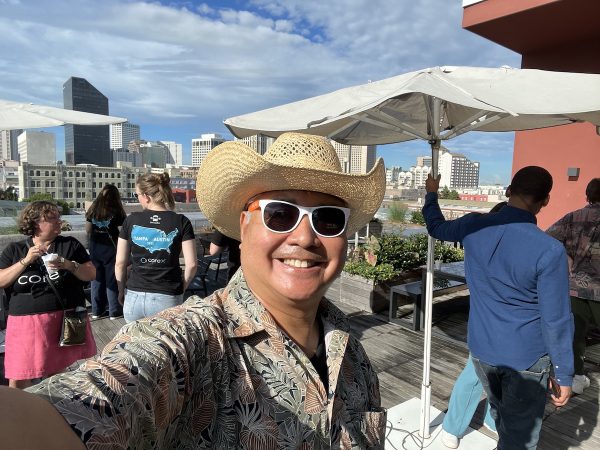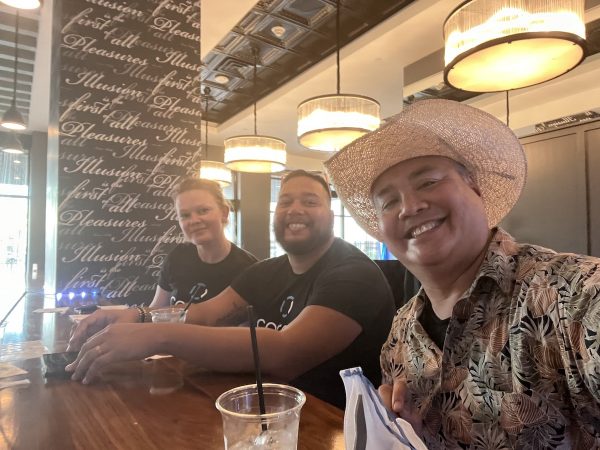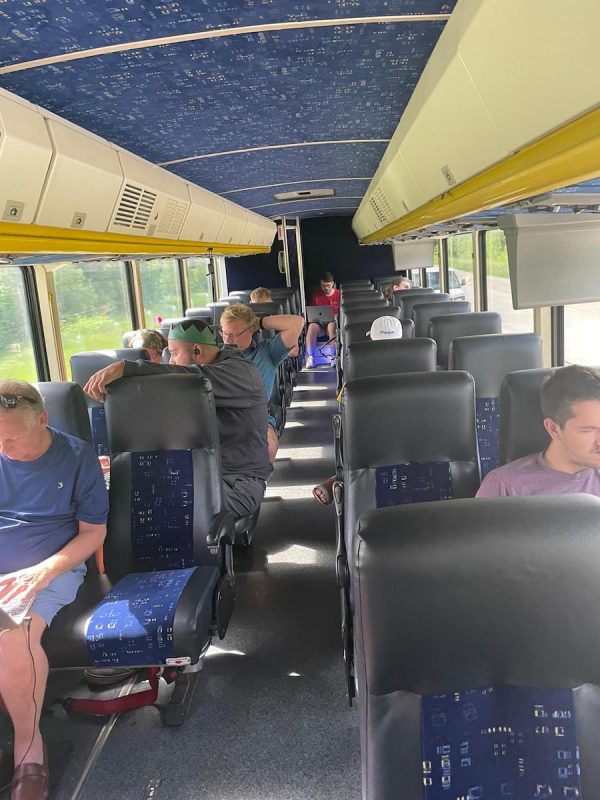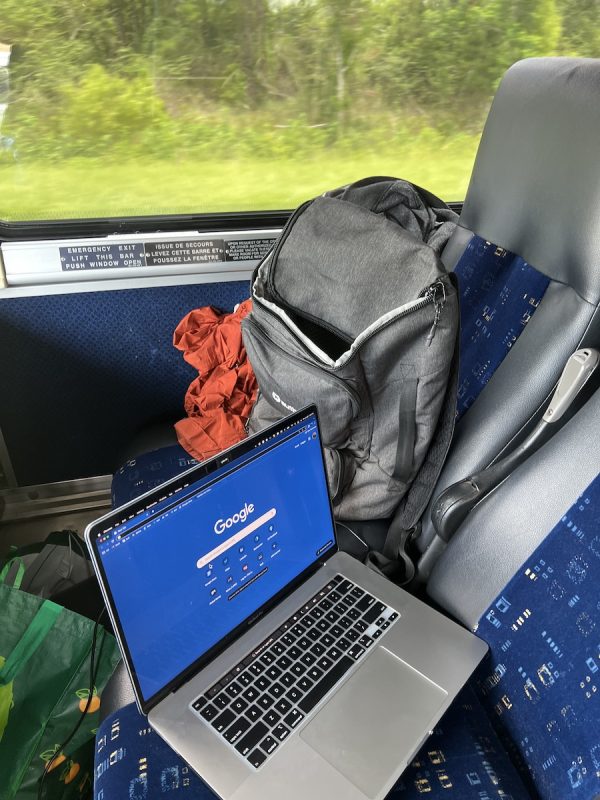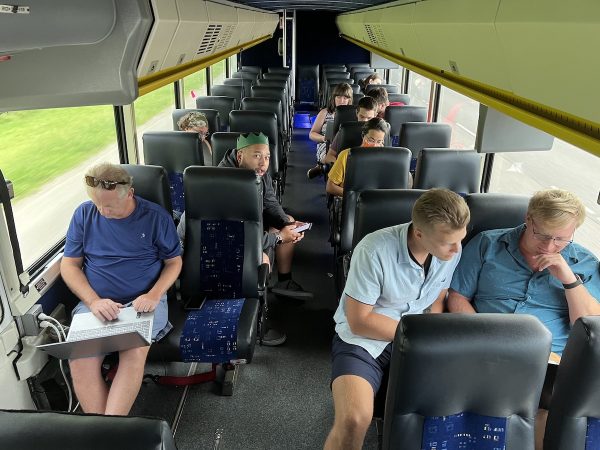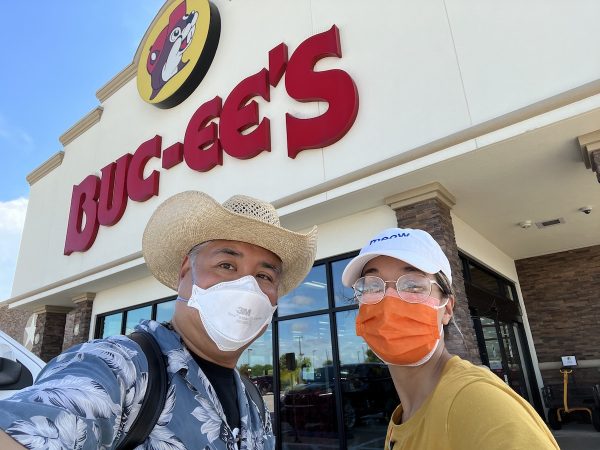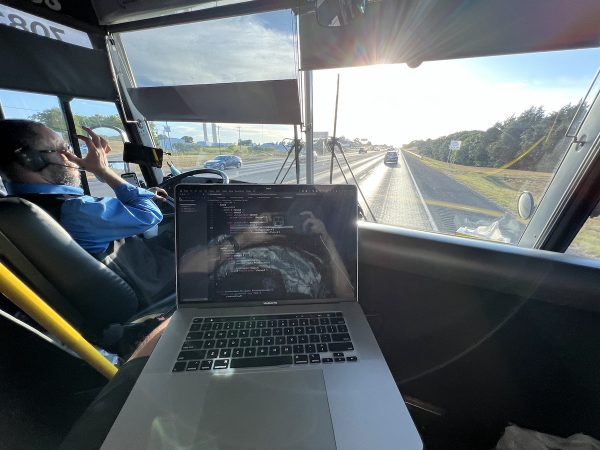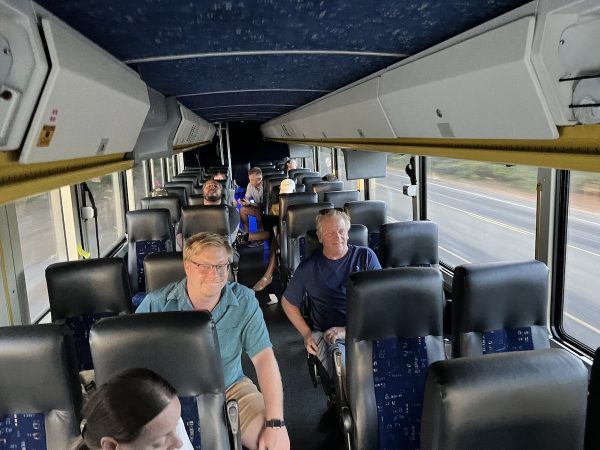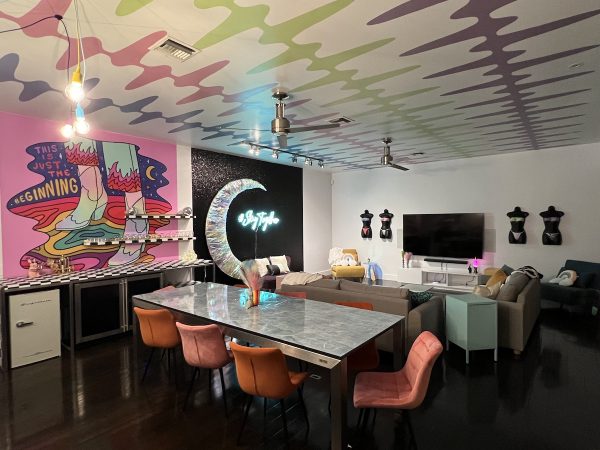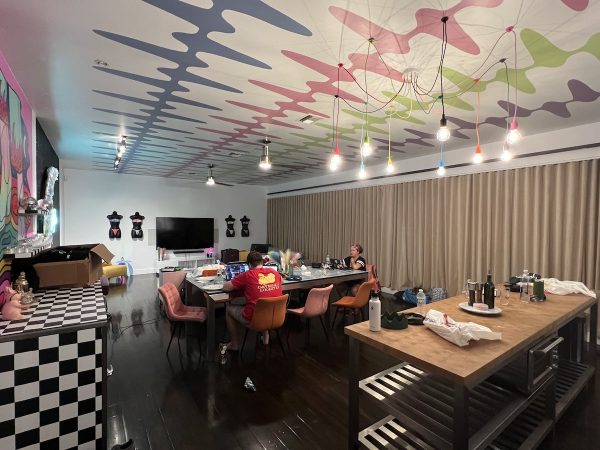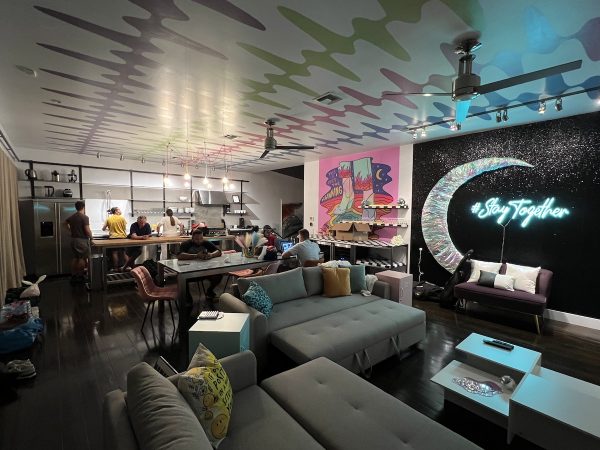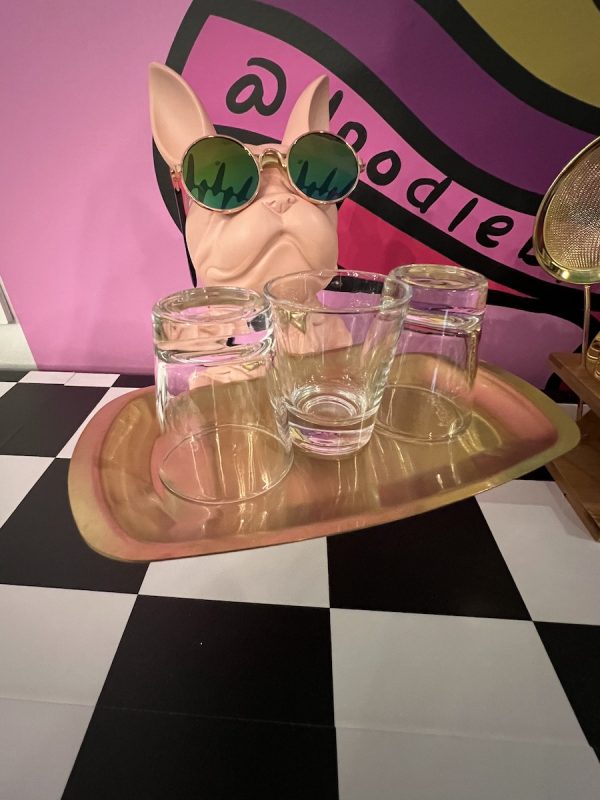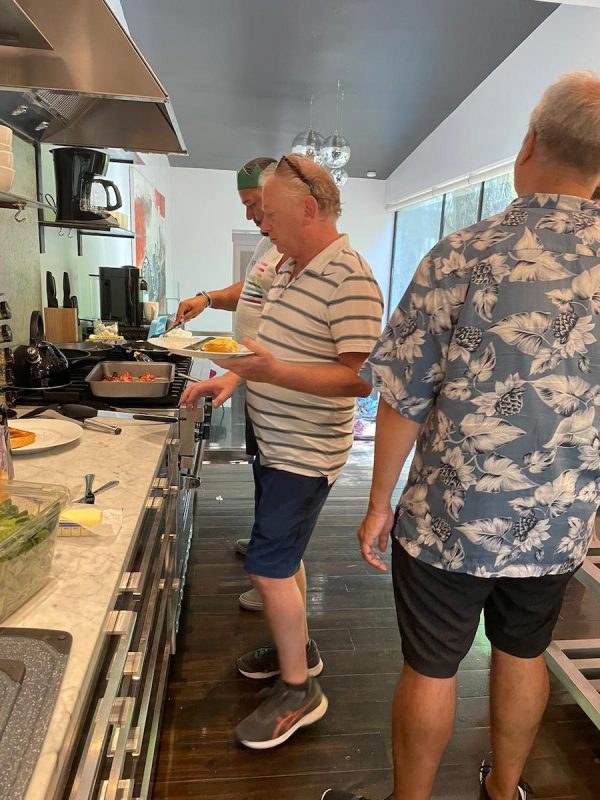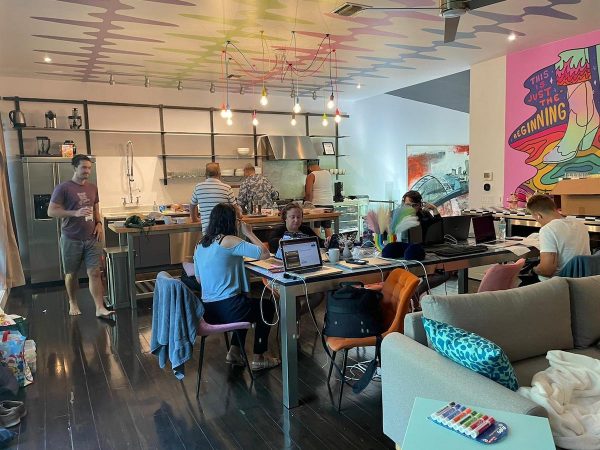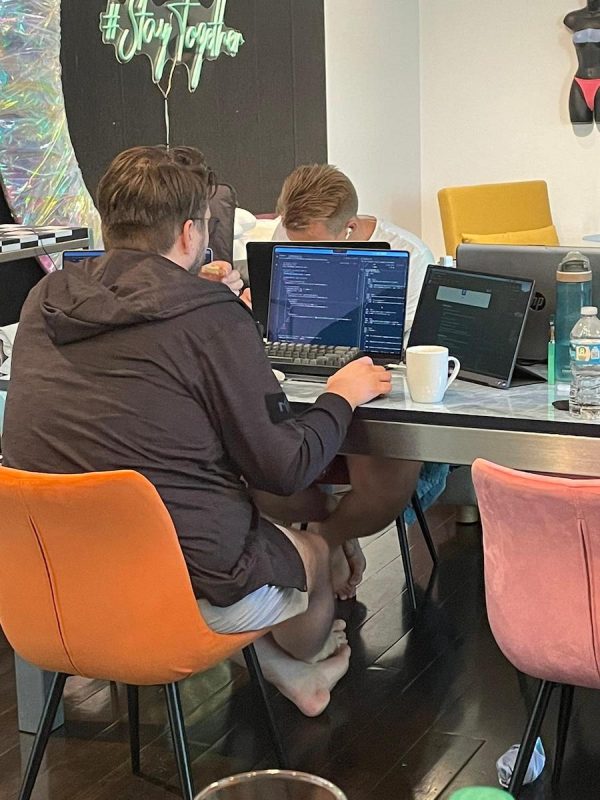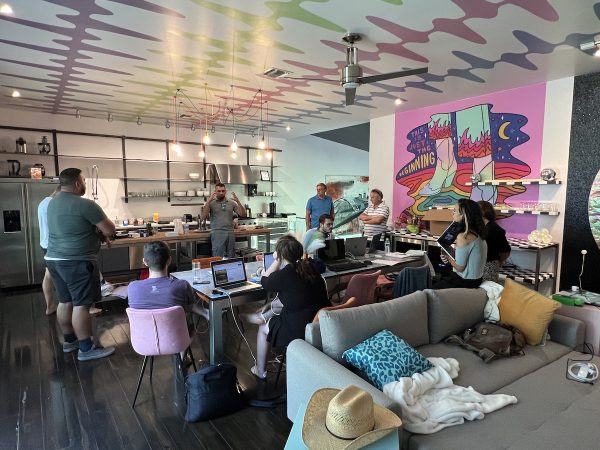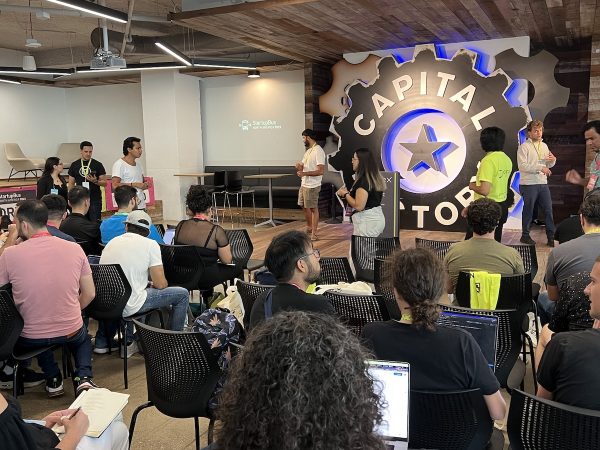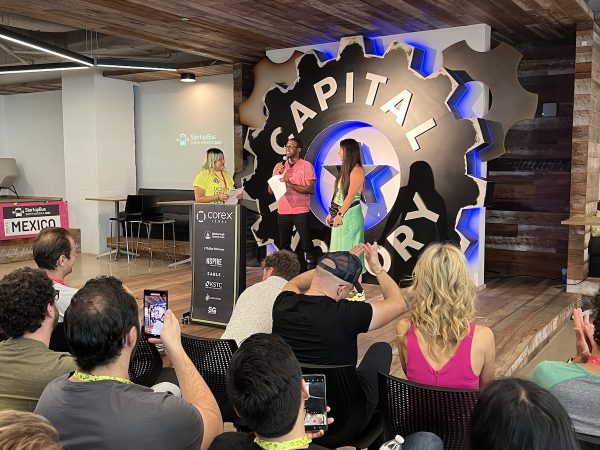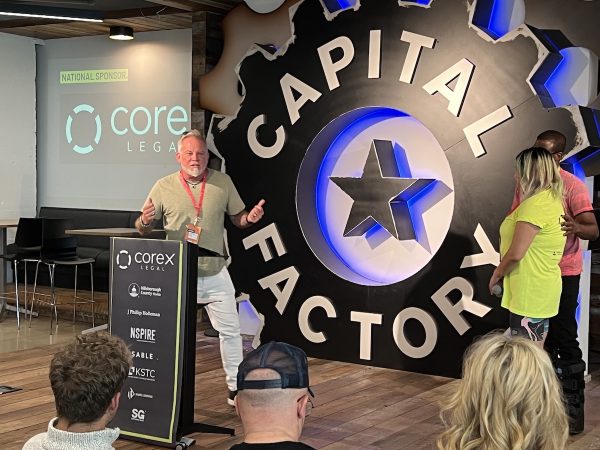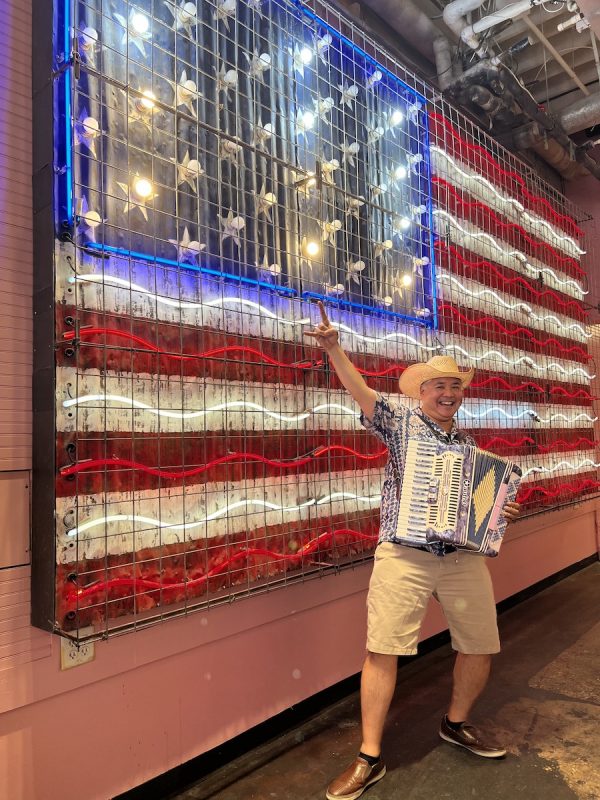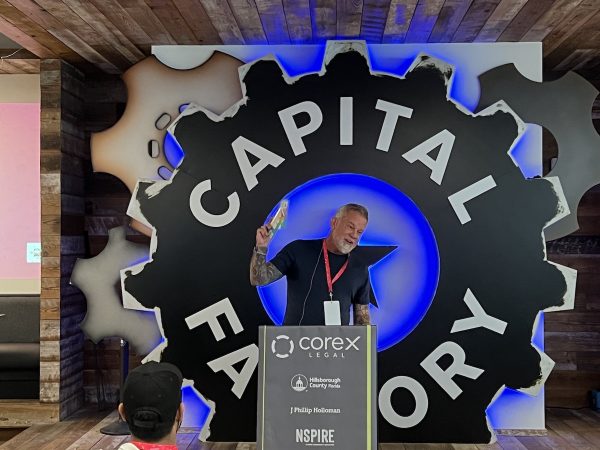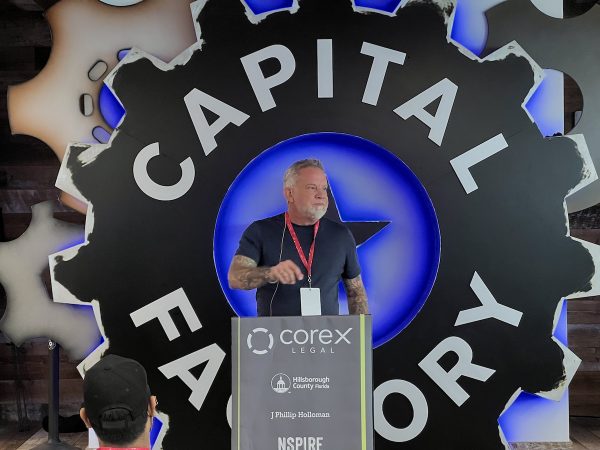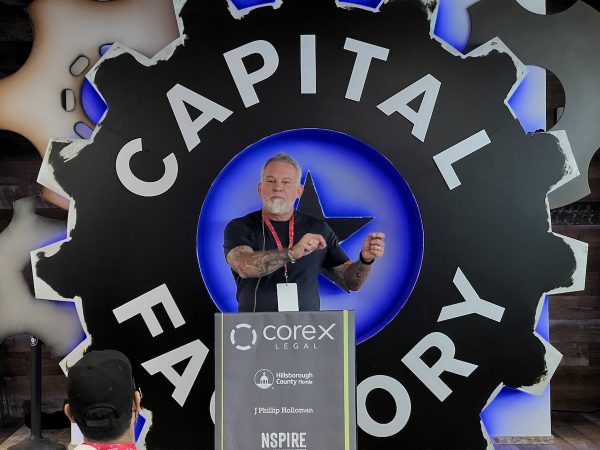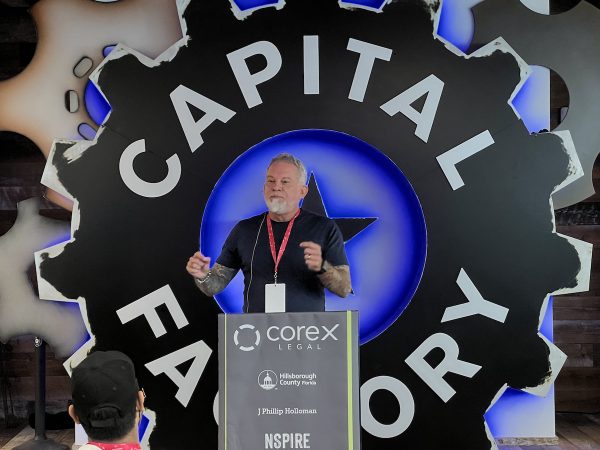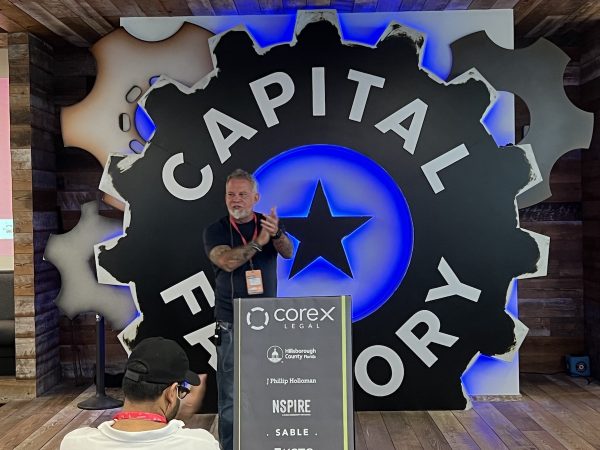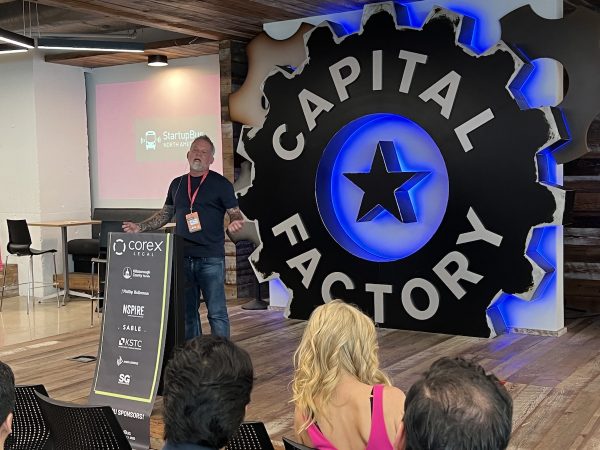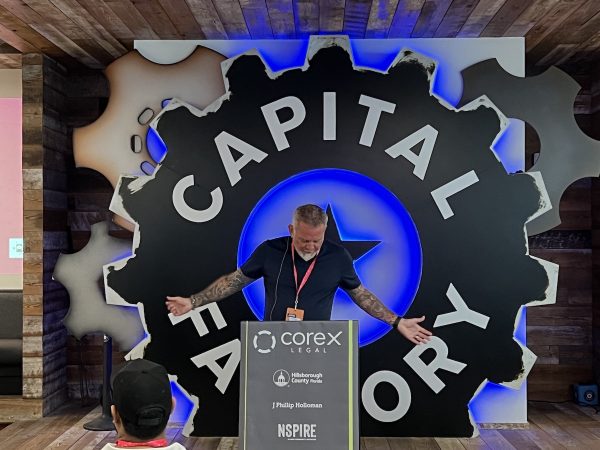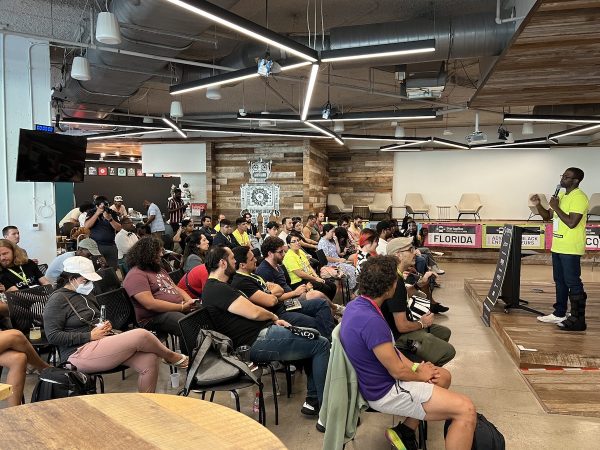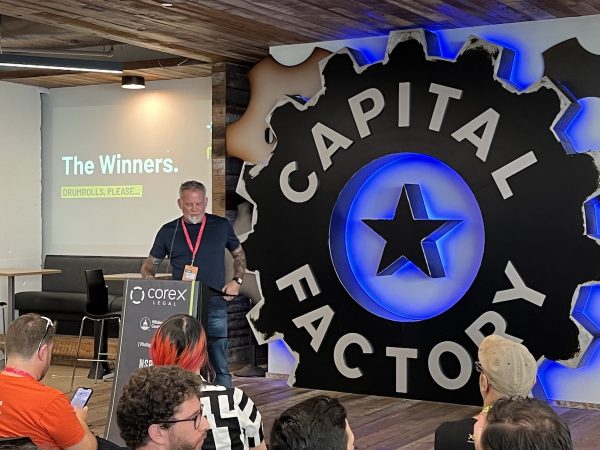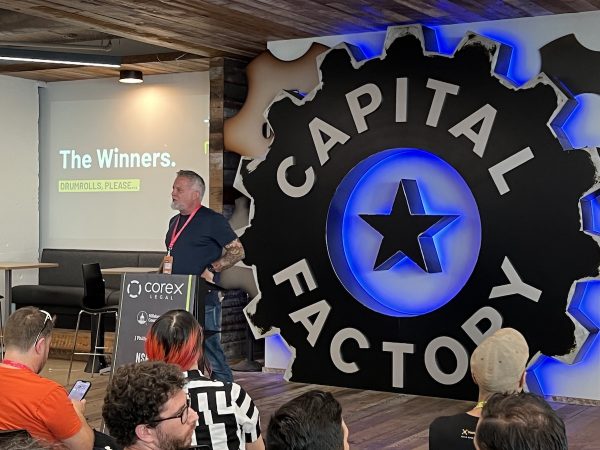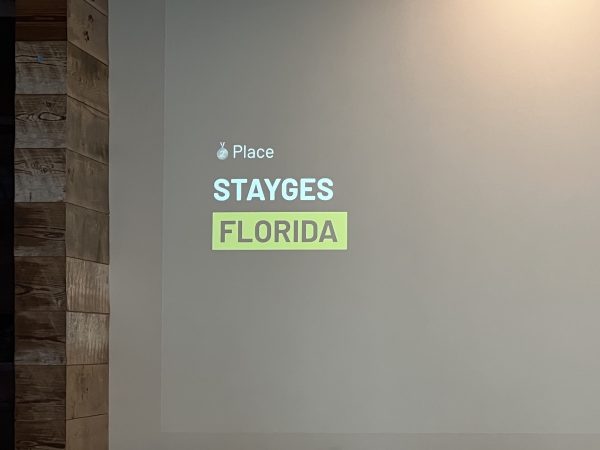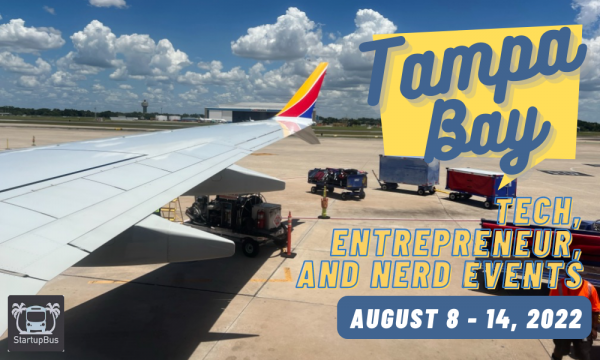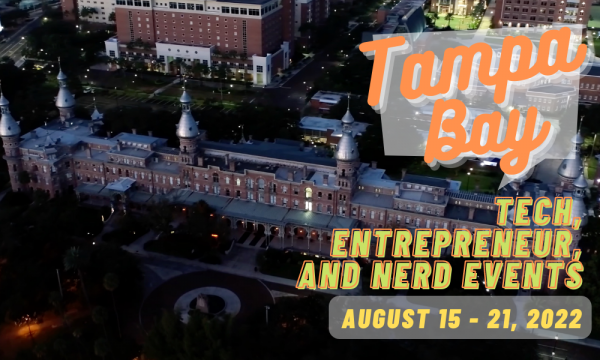
Here’s the list of tech, entrepreneur, and nerd events for Tampa Bay and surrounding areas for the week of Monday, August 15 through Sunday, August 21, 2022. That’s right, August will be half over this coming week!
Every week, with the assistance of a couple of Jupyter Notebooks that I put together, I compile this list for the Tampa Bay tech community.
As far as event types go, this list casts a rather wide net. It includes events that would be of interest to techies, nerds, and entrepreneurs. It includes (but isn’t limited to) events that fall under the category of:
- Programming, DevOps, systems administration, and testing
- Tech project management / agile processes
- Video, board, and role-playing games
- Book, philosophy, and discussion clubs
- Tech, business, and entrepreneur networking events
- Toastmasters (because nerds really need to up their presentation game)
- Sci-fi, fantasy, and other genre fandoms
- Anything I deem geeky
By “Tampa Bay and surrounding areas”, this list covers events that originate or are aimed at the area within 100 miles of the Port of Tampa. At the very least, that includes the cities of Tampa, St. Petersburg, and Clearwater, but as far north as Ocala, as far south as Fort Myers, and includes Orlando and its surrounding cities.
This week’s events
I update this list during the week as new events get announced or as people tell me about them. Want to stay up-to-date? Keep checking this post for updates!
Monday, August 15
| Group | Event Name | Time |
|---|---|---|
| Rafael Stuchiner | Blockchain, Bitcoin, Crypto! What’s all the Fuss?~~~Tampa, FL | See event page |
| JobFairX | Tampa Job Fair – Tampa Career Fair | 11:00 AM – 2:00 PM EDT |
| Young Professionals Networking JOIN in and Connect! | In person at Fords Garage St Pete | 11:00 AM |
| Christian Professionals Network Tampa Bay | Live Online Connection Meeting- Monday | 11:30 AM |
| Entrepreneurs & Business Owners of Sarasota & Bradenton | Virtual Networking Lunch Monday | 11:30 AM |
| North Tampa Networking Group | Business networking | 11:30 AM |
| Professional Business Networking with RGAnetwork.net | Virtual Networking Lunch | 11:30 AM |
| Thinkful Tampa | Thinkful Webinar || Learn Data Analytics With Thinkful | 12:00 PM – 1:30 PM EDT |
| SCIPS, a 50+ Tampa Bay Singles Club | EUCHRE, Rummy Q and other Board Games for ENTHUSIASTIC GAME PLAYERS | 4:00 PM |
| RedCarpetMonday Business Networking Group | RedCarpetMonday Orlando Business Networking Event hosted at Blue Martini | 6:00 PM |
| Thinkful Tampa | Thinkful Webinar || Data Science vs. Data Analytics | 6:00 PM – 7:30 PM EDT |
| Beginning Web Development | Weekly Learning Session | 6:00 PM |
| Tampa Bay Tabletoppers | Monday Feast & Game Night | 6:00 PM |
| Board Game Meetup: Board Game Boxcar | Monday Weekly Board Game Night! (Lazy Moon Colonial Location) | 6:00 PM |
| Critical Hit Games | MTG: Commander Night | 6:00 PM |
| Toastmasters, Division D | ACE Advanced Toastmasters 3274480 | 6:00 PM |
| Orlando Adventurer’s Guild | Tomb of Annhilation (APL 1, Forgotten Realms) – DM Carson | 6:00 PM |
| BerLagmark – Sarasota Amtgard | Monday Night Fighter Practice! | 6:00 PM |
| Toastmasters District 48 | Tampa Toastmasters Club 1810!! | 6:30 PM |
| St. Petersburg Crypto Investors and Miners Club | CryptoProCafe : Share your DAO Project | 6:30 PM |
| Toastmasters Division G | Triple Crown Toastmasters Club 4147 (Virtual) | 6:30 PM |
| Toastmasters District 48 | North Port Toastmasters Meets Online!! | 6:30 PM |
| Bradenton Photo Group | A Complete Guide to Photogrpahy | 6:30 PM |
| Light Study PRO – A Photography Workshop for Emerging Pros | Members as far back as 2008 can access their photos | 7:00 PM |
| Coded For Money, Flow and Fame – Tampa Group | How to Get a Never-Ending Flow of Clients | 7:00 PM |
| Tampa – Sarasota – Venice Trivia & Quiz Meetup | Trivia Night – Motorworks Brewing Smartphone Trivia Game Show | 7:00 PM |
| Ironhack Tampa – Tech Careers, Learning and Networking | Learn the Basics of Python Programming from an Industry Expert 📊 | 7:00 PM |
| Toastmasters Division E | Lakeland (FL) Toastmasters Club #2262 | 7:00 PM |
| Tampa Area Crypto And NFT IRL | How to Launch a Successful NFT Project | 7:00 PM |
| Tampa Bay Gaming: RPG’s, Board Games & more! | Board Game Night at Armada Games | 7:00 PM |
| Library Book Clubs – OCLS | Virtual Event: Hiawassee Book Club | 7:00 PM |
| Central Florida AD&D (1st ed.) Grognards Guild | World of Greyhawk: 1E One-Shots | 7:30 PM |
| Thinkful Tampa | Thinkful Webinar || Intro To Data Analytics: Tableau Basics | 9:00 PM – 10:30 PM EDT |
| Tampa / St Pete Business Connections | Monday Virtual Business Introductions | 11:30 PM |
Tuesday, August 16
Wednesday, August 17
Thursday, August 18
| Group | Event Name | Time |
|---|---|---|
| Doris Muller for NPI Westchase Chapter | Business Networking Event for Local Professionals | See event page |
| Pasco County Young Entrepreneurs/Business Owners All Welcome | Happy Hangar Early Bird Professionals Networking | 7:30 AM |
| Young Professionals Networking JOIN in and Connect! | Tampa Young Professionals Virtual Networking Thursday Morning All WElCOME | 7:30 AM |
| Pasco County Young Entrepreneurs/Business Owners All Welcome | Happy Hangar Early Bird Professionals Networking | 7:30 AM |
| Professional Business Networking with RGAnetwork.net | Virtual Networking Breakfast Thursday’s | 7:30 AM |
| Professional Business Networking with RGAnetwork.net | Wesley Chapel/Lutz networking breakfast | 7:30 AM |
| Business Networking Weekly Meeting for Local Professionals | Business Networking for Local Professionals | 8:00 AM |
| WITI – Women In Technology International | Wake Up With WITI Tampa Bay | 8:00 AM – 9:00 AM EDT |
| Orlando Melrose Makers | In-Person: Makerspace Open Lab | 10:30 AM |
| Tampa / St Pete Business Connections | Clearwater/Central Pinellas Networking Lunch | 11:00 AM |
| Florida Startup: Idea to IPO | How to Cut Product Development Costs by up to 50%! | 11:00 AM |
| Suncoast Credit Union Micro Enterprise Development Meetup | A Successful Holiday Marketing Checklist for Your B2B or B2C Business | 11:00 AM |
| Block Co-op – Bitcoin Crypto Blockchain Orlando | Crypto Set-up Class -Limited to 5 Seats Only | 11:00 AM |
| Young Professionals Networking JOIN in and Connect! | The Founders Meeting where it all Began! JOIN us! Bring a guest and get a gift | 11:00 AM |
| Business Game Changers Group | Clearwater Professional Networking Lunch | 11:00 AM |
| ManageEngine’s Cybersecurity Meetups | Make your SIEM 10 times more powerful: Adopt these 4 capabilities | 11:00 AM |
| Pasco County Young Entrepreneurs/Business Owners All Welcome | Wesley Chapel Professional Networking Lunch at Chuck Lager America’s Tavern | 11:30 AM |
| Wesley Chapel, Trinity, New Tampa, Business Professionals | Wesley Chapel Grill Smith Professional Networking Lunch | 11:30 AM |
| Network Professionals Inc. of South Pinellas (NPI) | NPI Power Lunch – Exchange Qualified Business Referrals | 11:30 AM |
| Tampa Bay Business Networking Meetings & Mixers | Brandon Networking Professionals Networking Lunch | 11:30 AM |
| Thinkful Tampa | Thinkful Webinar || UX/UI Design: Wireframes and Prototypes | 12:00 PM – 1:30 PM EDT |
| “Learn and Earn” Millionaire Mind Secrets & Networking | Online Zoom! Millionaire Mind Lunch; Book Club and Networking! | 12:00 PM |
| Toastmasters District 48 | Telecom Park Toastmasters #6745 | 12:00 PM |
| Tampa Bay Atlassian Community Events | Interpersonal Alchemy: The Magic Behind High-Performing Teams | 12:30 PM |
| Network After Work Tampa – Networking Events | How to Maximize LinkedIn Virtual Summit | 1:00 PM |
| Orlando Cybersecurity Meetup | Enhance your help desk productivity with ADManager Plus integration | 2:00 PM |
| Free Video Production Classes – TV/Internet | YouTube Basics (ONLINE CLASS) – FREE for Hillsborough County Residents | 3:00 PM |
| Tampa – Sarasota – Venice Trivia & Quiz Meetup | Trivia Night – Bunkers Bar of Sun City Center Smartphone Trivia Game Show | 5:00 PM |
| High Tech Connect | August Tech Fest | 5:00 PM |
| Tampa Professional Networking Meetup | Happy Hour Networking – Cigars, Fine Wines and Brews | 5:00 PM |
| One Time Entrepreneureal Power Meetup | One Day Entrepreneur Meetup | 5:00 PM |
| Amazon Seller Meetup | Clearwater, Florida | Titans of Amazon FBA | Clearwater-Tampa MEET UP | 5:30 PM |
| Tampa Cybersecurity Training | LinkedIn Local Tampa Bay – In-Person Networking | 5:30 PM |
| Tampa Bay Tech Career Advice Forum | LinkedIn Local Tampa Bay – In-Person Networking | 5:30 PM |
| Tampa Holistic Wealth & Success Business Networking Grp | The Global & Nationwide Business Networking Event – Aug 18th 2022 | 5:30 PM |
| We Write Here Black and Women of Color Writing Group | Virtual Writing Get Downs | 6:00 PM |
| Thinkful Tampa | Thinkful Webinar || Data Analytics: Tools of the Trade | 6:00 PM – 7:30 PM EDT |
| Tampa Bay Gaming: RPG’s, Board Games & more! | D&D Adventurers League at Critical Hit Games | 6:00 PM |
| Entrepreneur Collaborative Center | Fail Forward | 6:00 PM – 7:30 PM EDT |
| Brandon and Seffner area AD&D and Rifts (Palladium) Group | 1st ed AD&D Campaign. | 6:00 PM |
| Summerfield Board/Card Game Night | Summerfield Tabletop/Board/Card Games | 6:00 PM |
| Critical Hit Games | Star Wars Night | 6:00 PM |
| Orlando Board Gaming Weekly Meetup | Central Florida Board Gaming at The Collective | 6:00 PM |
| Tampa Ybor Free Writing Group | Writing Meetup | 6:30 PM |
| The Pinellas County Young “Professionals” | Happy Hour: Season 2 – TapHouse 61 | 6:30 PM |
| Tampa Bay Data Science Group | TBDSG: Your Presentation Title HERE! | 6:30 PM |
| Tampa Bay Agile | Lean Beer for All Things Agile (Tampa) | 6:30 PM |
| Tampa Hackerspace | 3D Printer Orientation: Printing at Tampa Hackerspace (THS Members only) | 7:00 PM |
| Business Networking for Entrepreneurs of Color | “How to Create Profitable Digital Products” | 7:00 PM |
| Live streaming production and talent | Live streaming production and talent | 7:00 PM |
| Meet Me In The Metaverse | Meet Me In The Metaverse – Florida’s First Web3 Metaverse Meetup | 7:00 PM |
| Tampa Hackerspace | Laser Cutter Orientation (Members Only) | 7:00 PM |
| Tampa Bay Bitcoin | Bitcoin Only – Bitcoin 101 | 7:00 PM |
| Gen Geek | Line Dance Lessons at the Dallas Bull | 7:00 PM |
| Thinkful Tampa | Thinkful Webinar || UX/UI Design: Creating A Design System | 9:00 PM – 10:30 PM EDT |
Friday, August 19
| Group | Event Name | Time |
|---|---|---|
| Winter Park Toastmasters – Learn while having FUN! | Improve your communication, listening, and leadership skills | 7:15 AM |
| Laid Back Leads Group | Laid Back Leads Group | 8:00 AM |
| Hosted By Toastmasters District 48 | Real Talkers #7306 | 9:15 AM |
| Computer Advantage, Apple Premier Partner | Advantage Talks: Don’t let iCloud be confusing! | 10:00 AM – 11:00 AM EDT |
| Tampa Bay Business Networking Happy Hour/Meetings/Meet Up | International Networking Westshore McAlisters Deli | 11:30 AM |
| Tampa / St Pete Business Connections | International Professionals Networking Meeting | 11:30 AM |
| Tampa Bay Business Networking Meetings & Mixers | Friday Business Introductions! | 11:30 AM |
| Young Professionals Networking JOIN in and Connect! | Friday Business Introductions JOIN us at Cafe Delanie All Welcome | 11:30 AM |
| Professional Business Networking with RGAnetwork.net | Friday International Business Introductions at McAllisters Westshore | 11:30 AM |
| Thinkful Tampa | Thinkful Webinar || Intro to JavaScript: Build a Virtual Pet | 12:00 PM – 1:30 PM EDT |
| Clermont Nerd Games | Board Game Night! | 5:00 PM |
| Toastmasters District 48 | MESSAGE CRAFTERS | 5:30 PM |
| Tampa Gaming Guild | Friday Board Game Night | 5:30 PM |
| Critical Hit Games | MTG: Commander FNM | 6:00 PM |
| Nerd Night Out | Taps & Drafts | 6:00 PM |
| Thinkful Tampa | Thinkful Webinar || Learn Data Analytics With Thinkful | 6:00 PM – 7:30 PM EDT |
| Tampa Bay Gaming: RPG’s, Board Games & more! | Board Game night at The Strange Realms in Carrollwood Friday, 6 PM | 6:00 PM |
| MakerFX Makerspace | MakerFX Makerspace Woodshop Guild | 6:00 PM |
| Toastmasters District 48 | Positively Speaking Toastmasters | 6:15 PM |
| Oviedo Middle Aged Gamers (OMAG) | Tabletop: Friday Board Game Night | 7:00 PM |
| Orlando Adventurer’s Guild | Canon’s Custom Campaign Moonsea Tour – DM Canon (Tier 3) | 7:00 PM |
| Nerdbrew Events | MtG EDH & Board Games @ Look Theaters Bar/Lounge | 7:00 PM |
| Gen Geek | Board games @mermaid tavern | 7:00 PM |
| Big Data and Analytics Tampa | Big Data and Analytics Networking Dinner | 7:30 PM |
| Thinkful Tampa | Thinkful Webinar || Data Science vs. Data Analytics | 9:00 PM – 10:30 PM EDT |
| Florida Center for Creative Photography | Monthly Cell Phone Photo Showcase | 11:59 PM |
Saturday, August 20
Sunday, August 21
Do you have any events or announcements that you’d like to see on this list?
Let me know at joey@joeydevilla.com!
Join the mailing list!
If you’d like to get this list in your email inbox every week, enter your email address below. You’ll only be emailed once a week, and the email will contain this list, plus links to any interesting news, upcoming events, and tech articles. Join the Tampa Bay Tech Events list and always be informed of what’s coming up in Tampa Bay!
